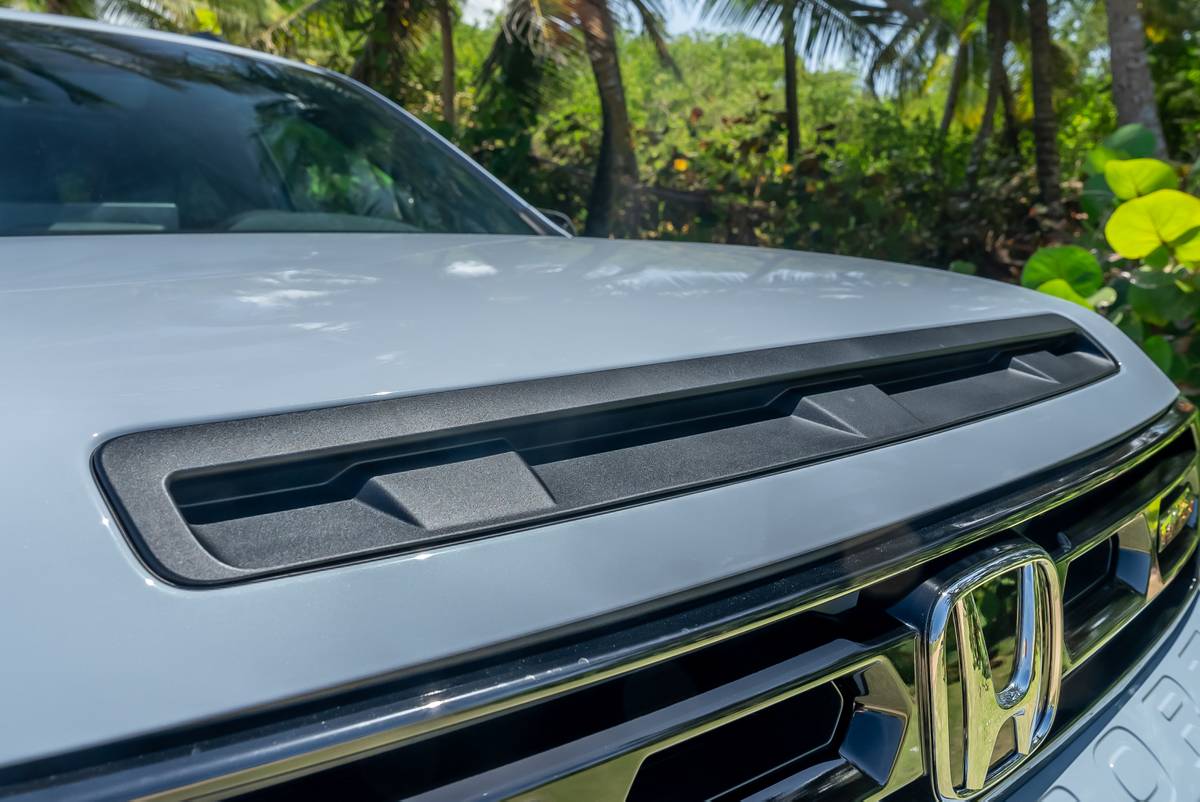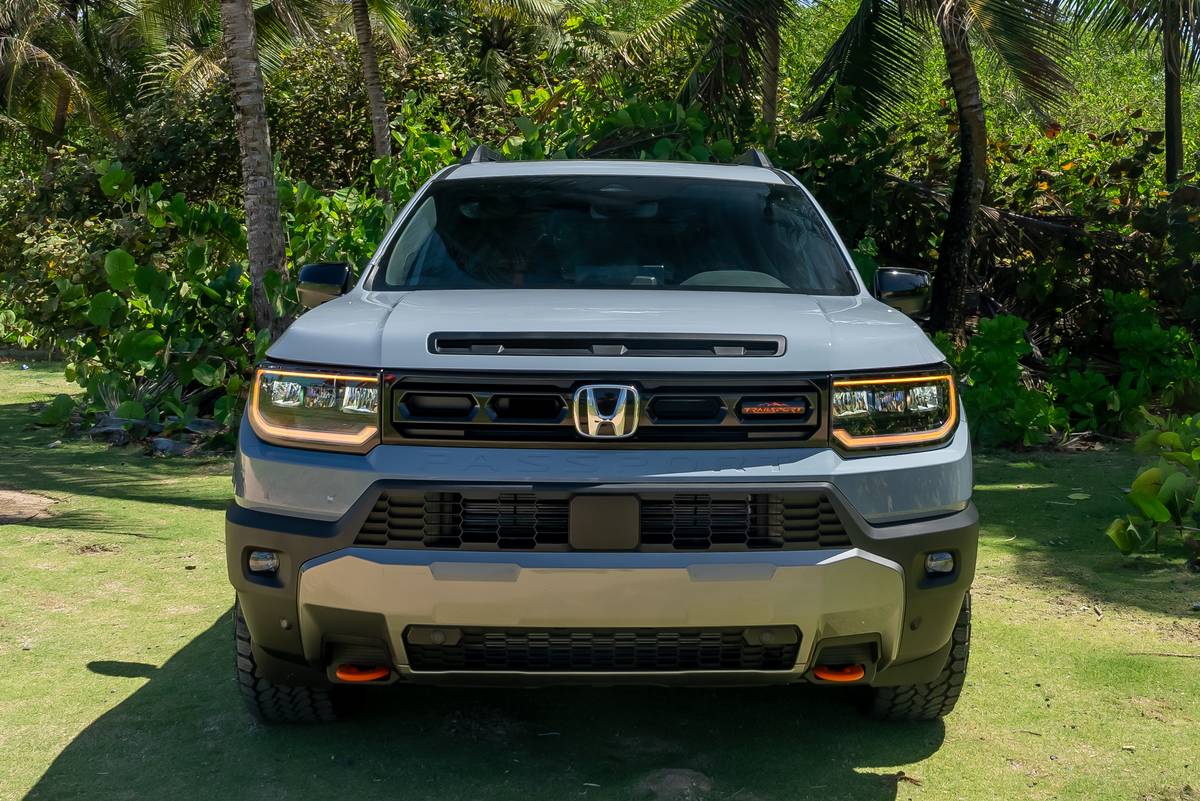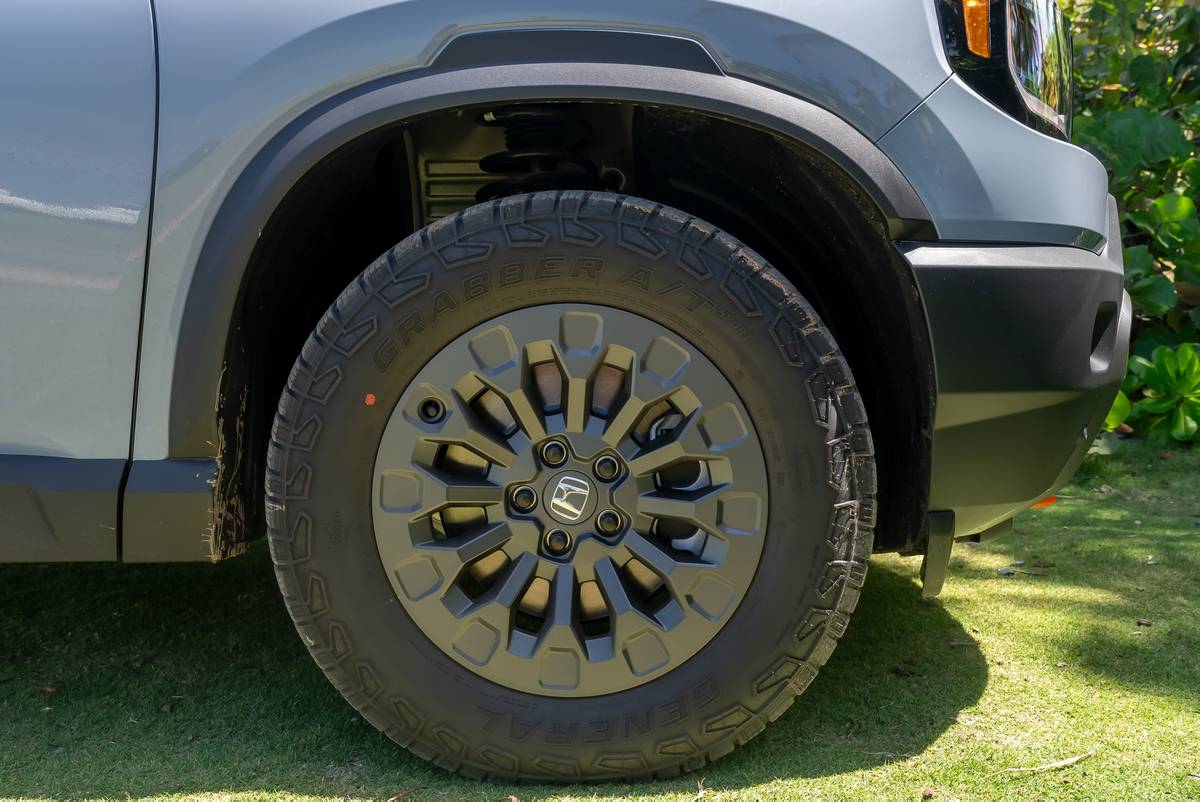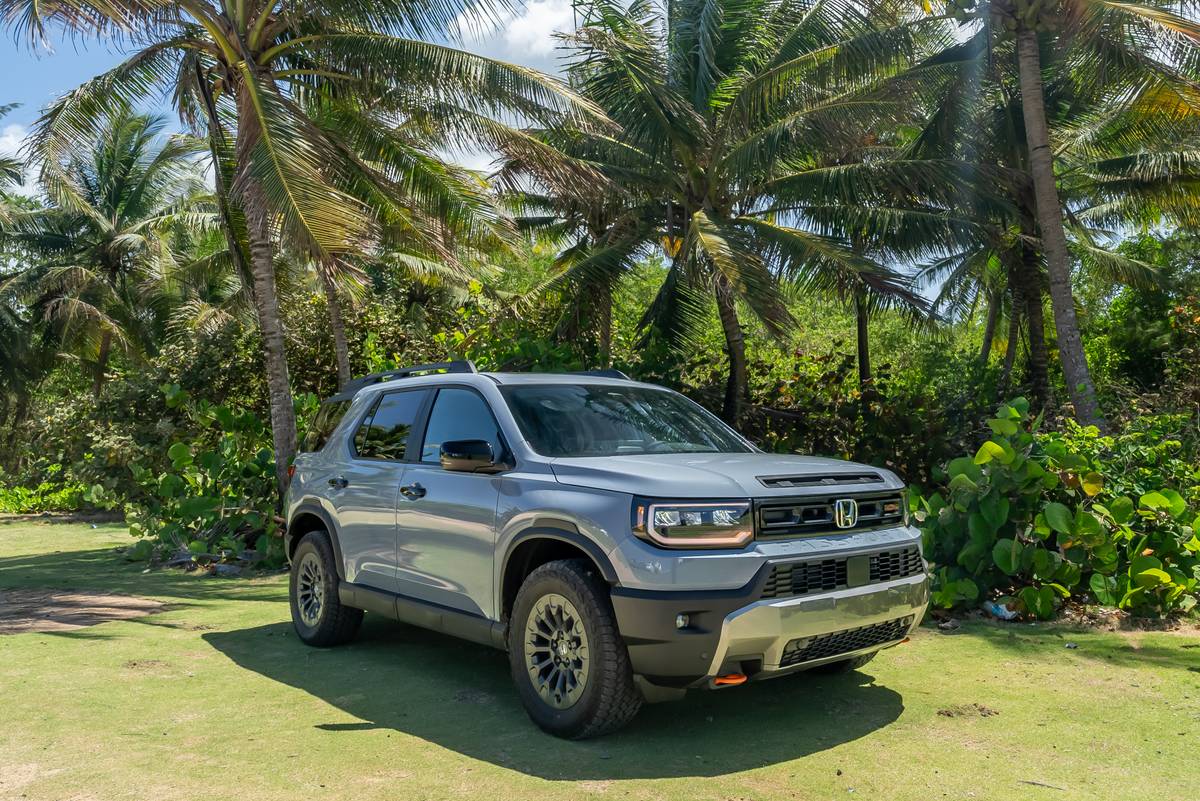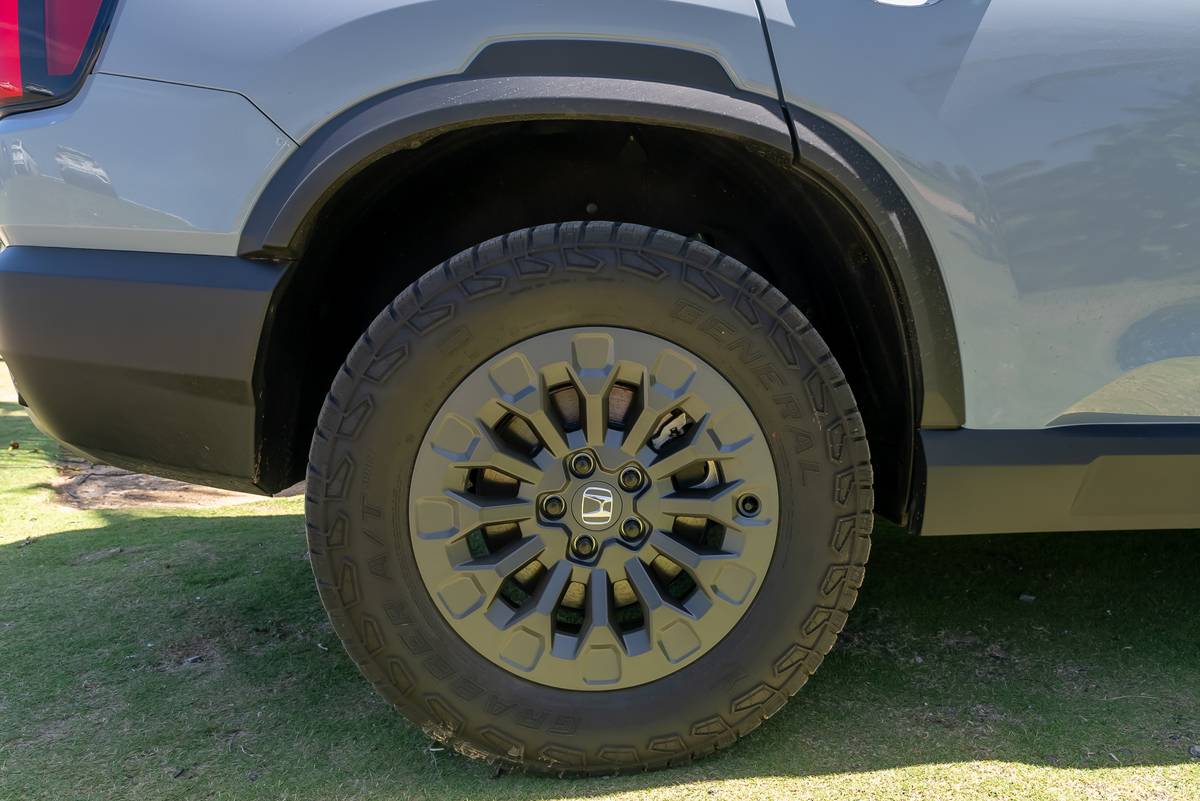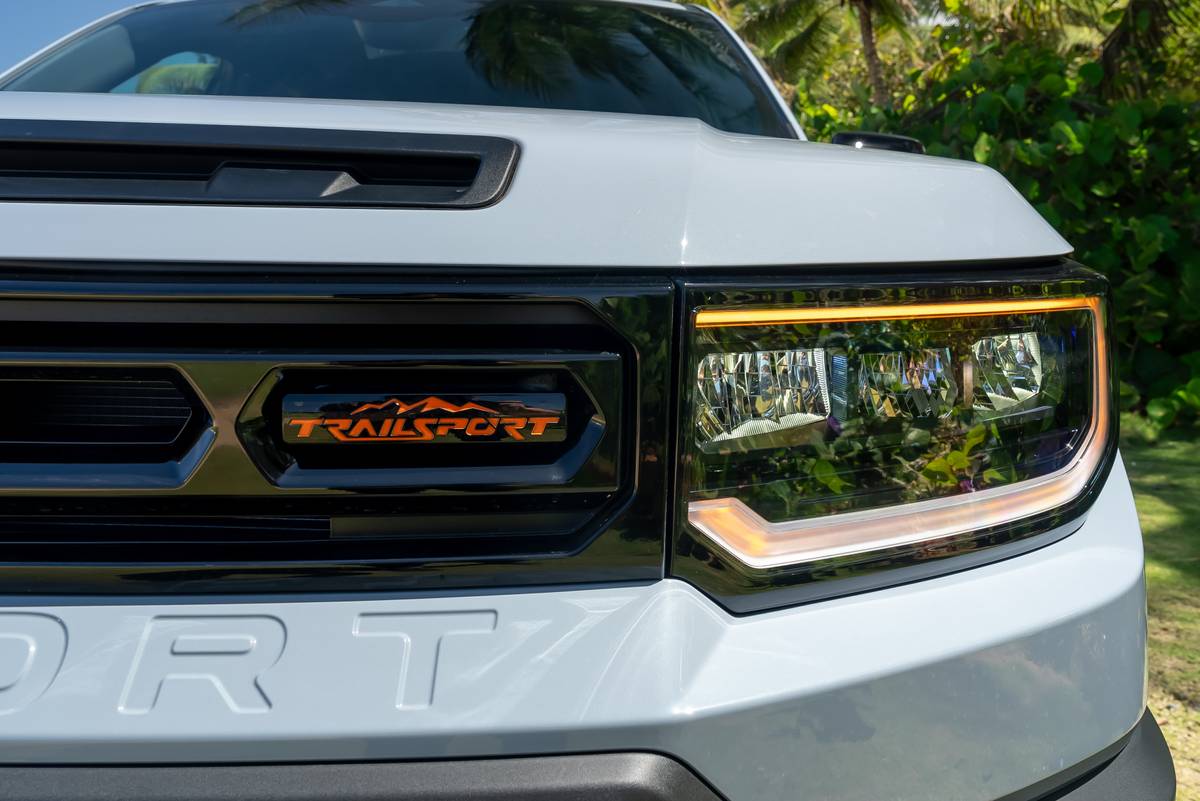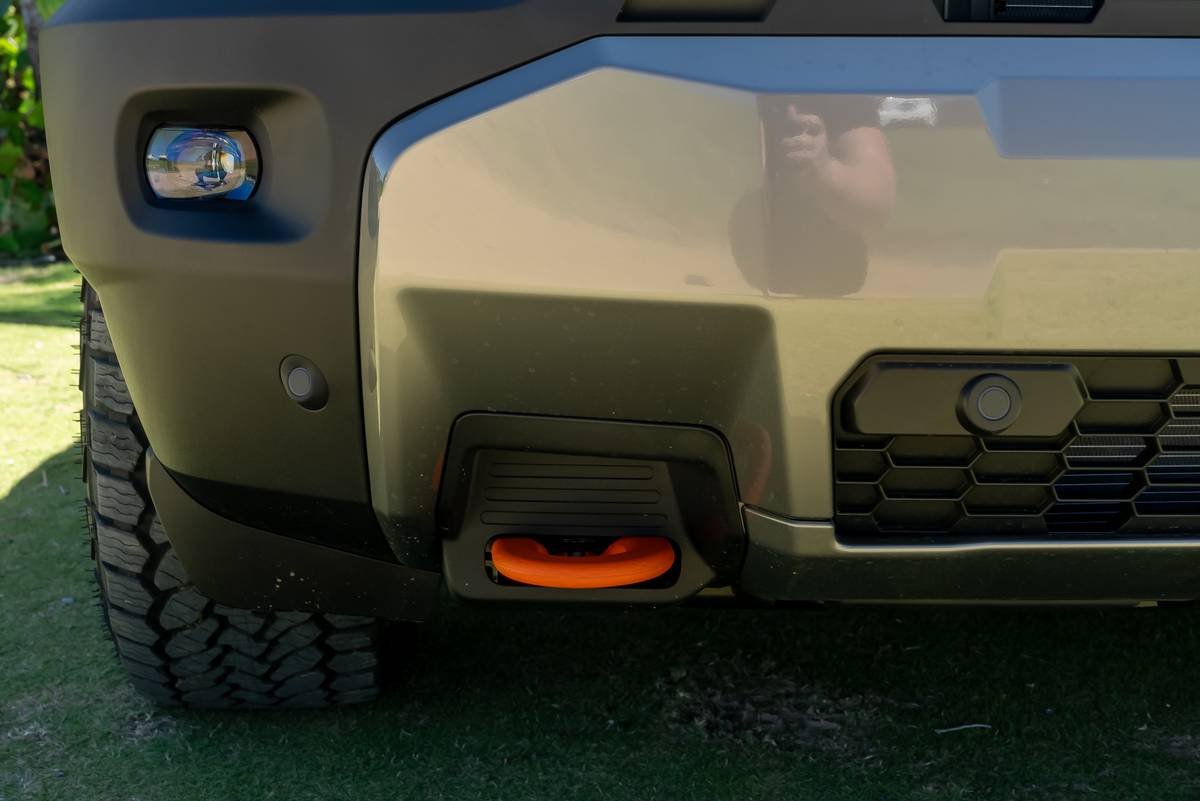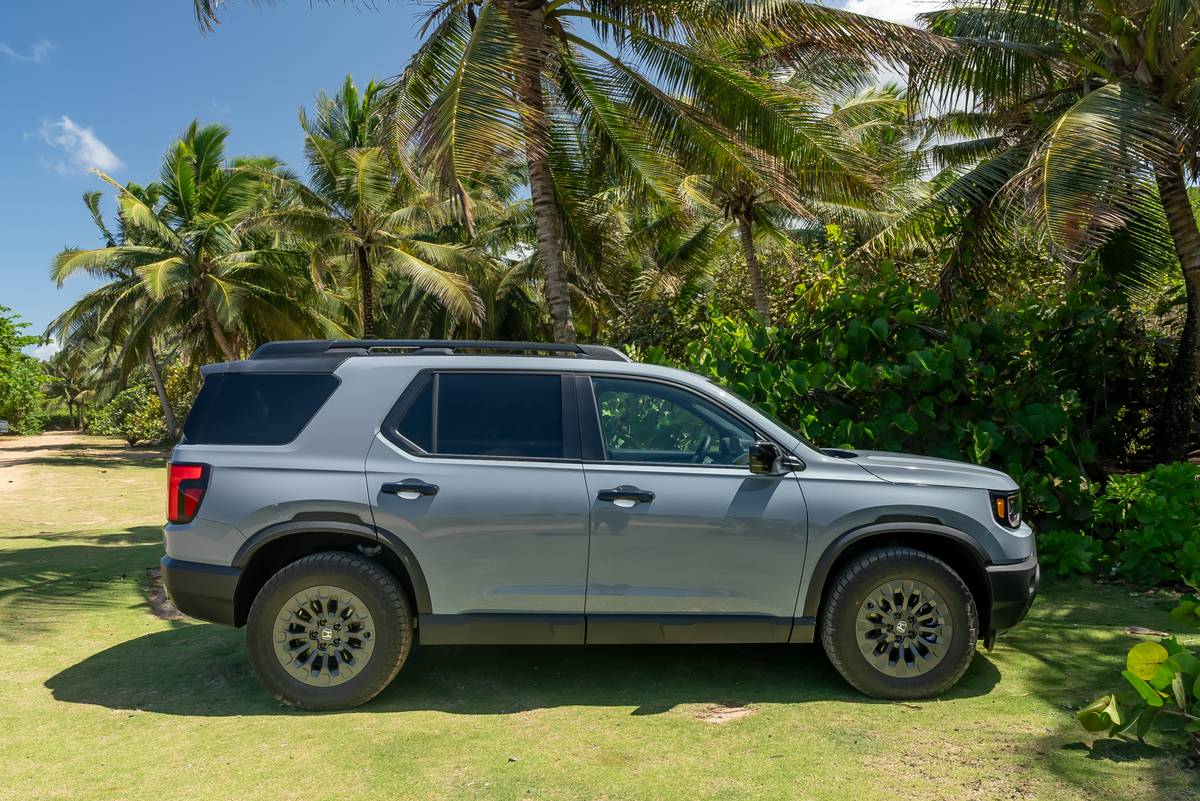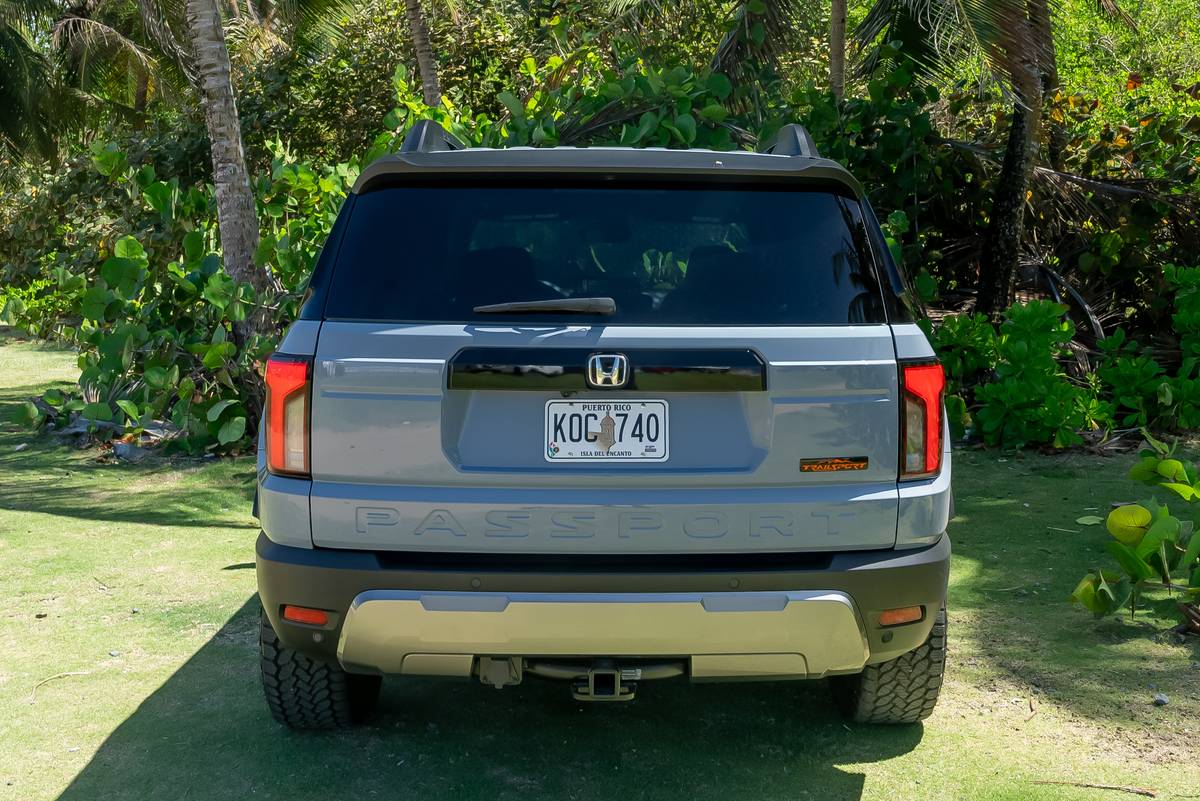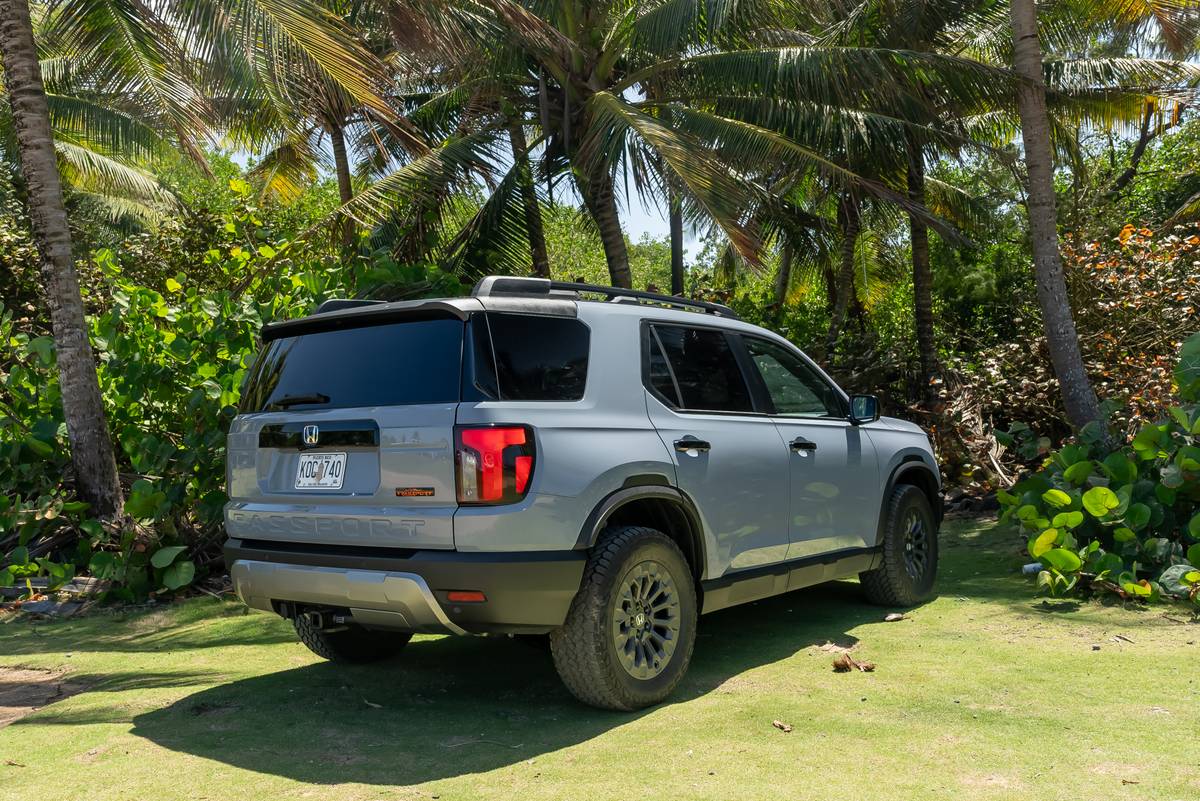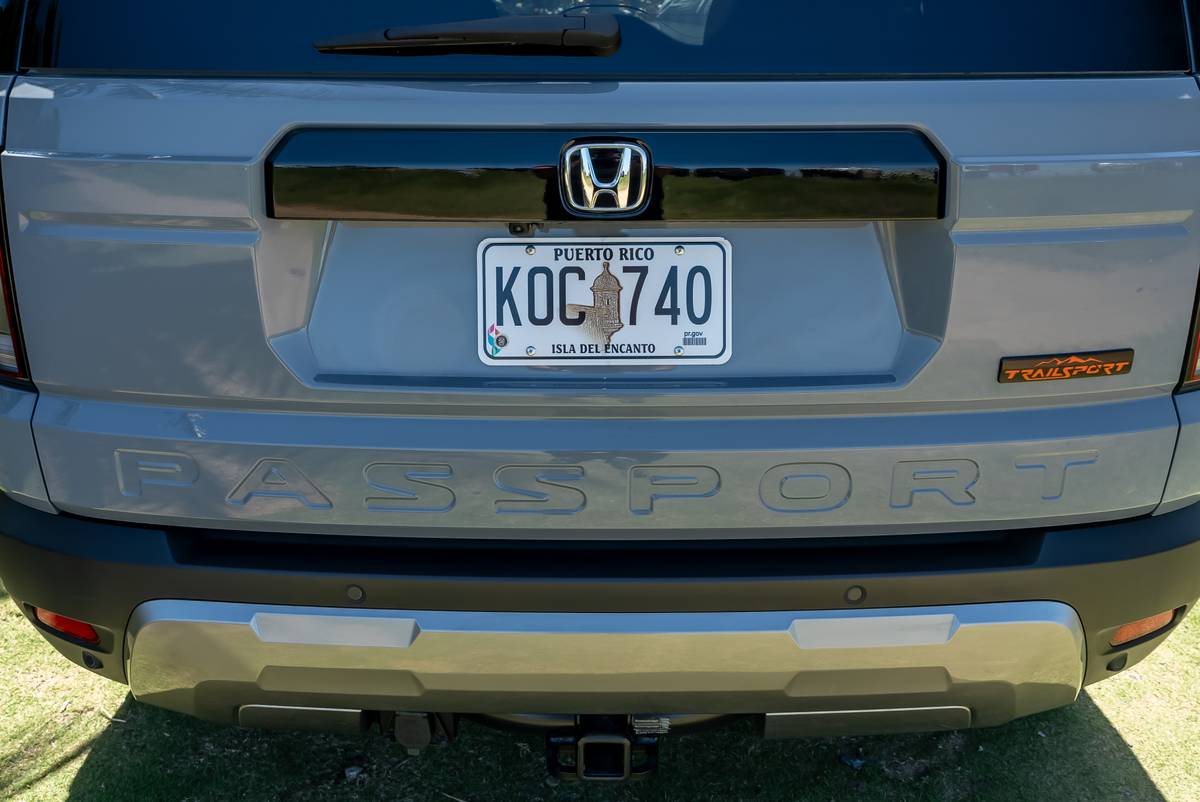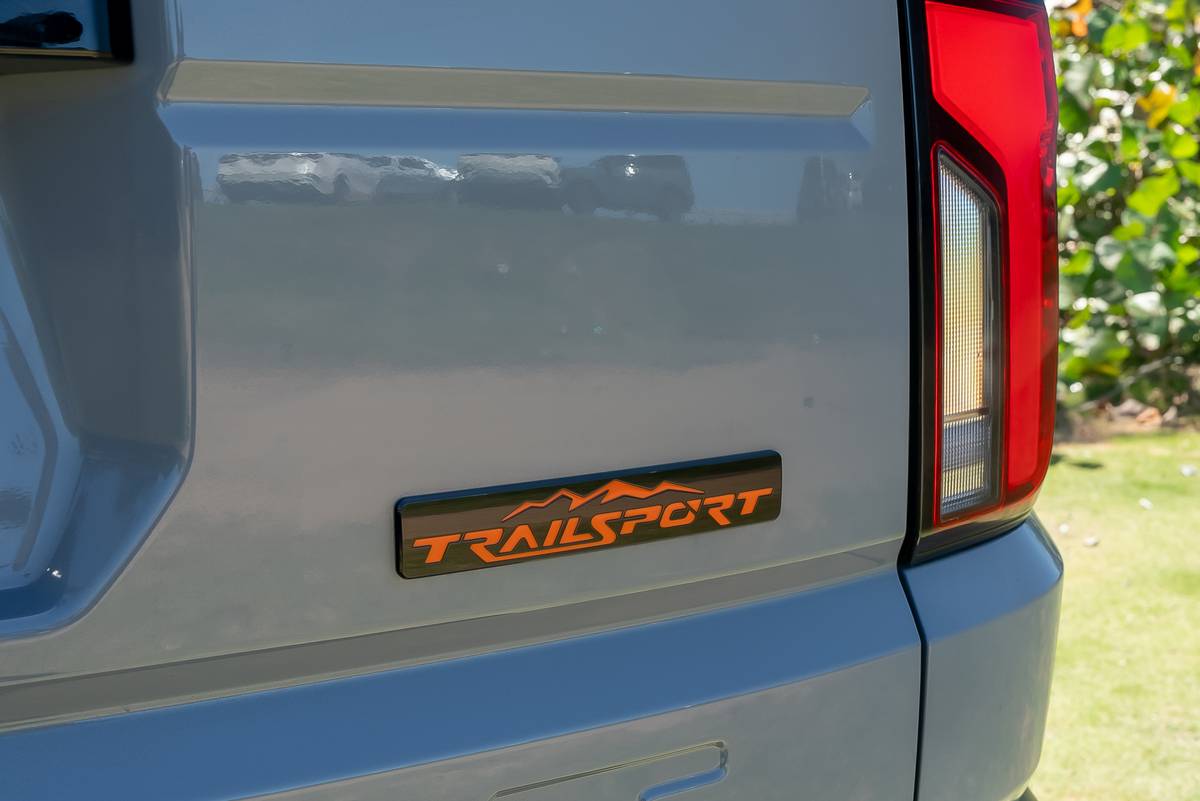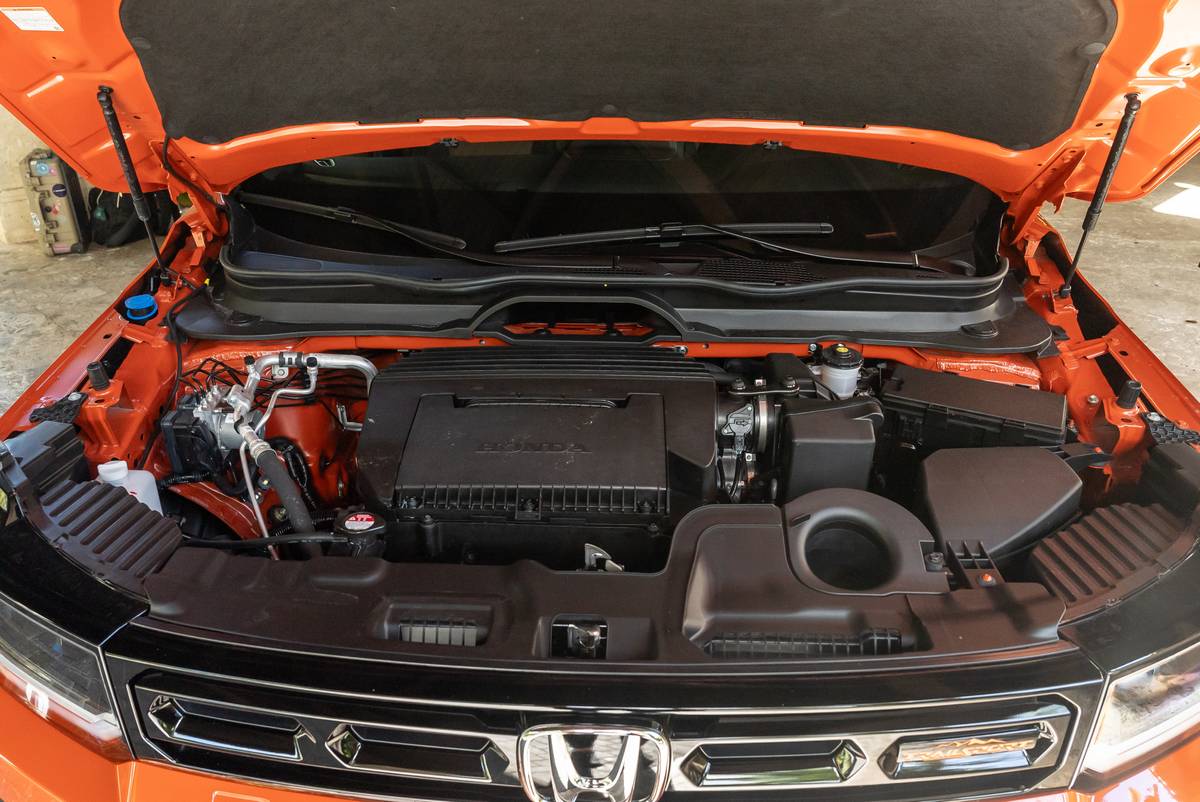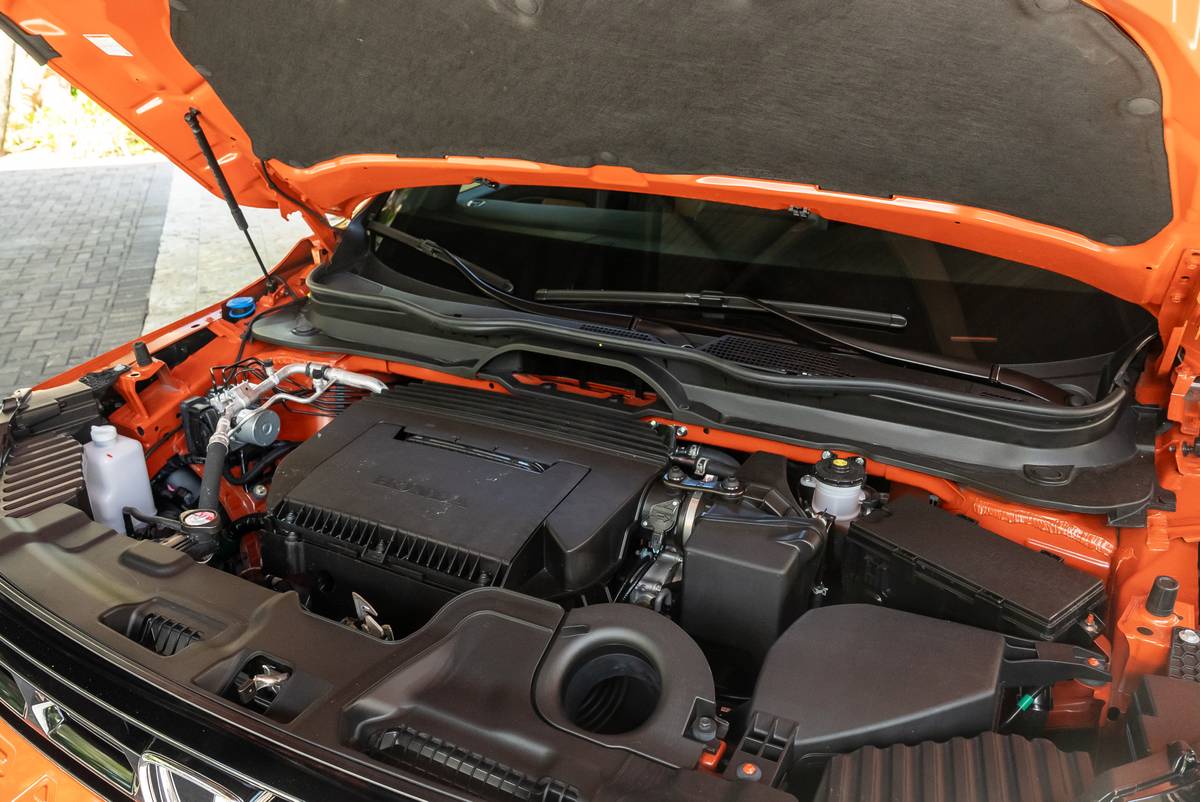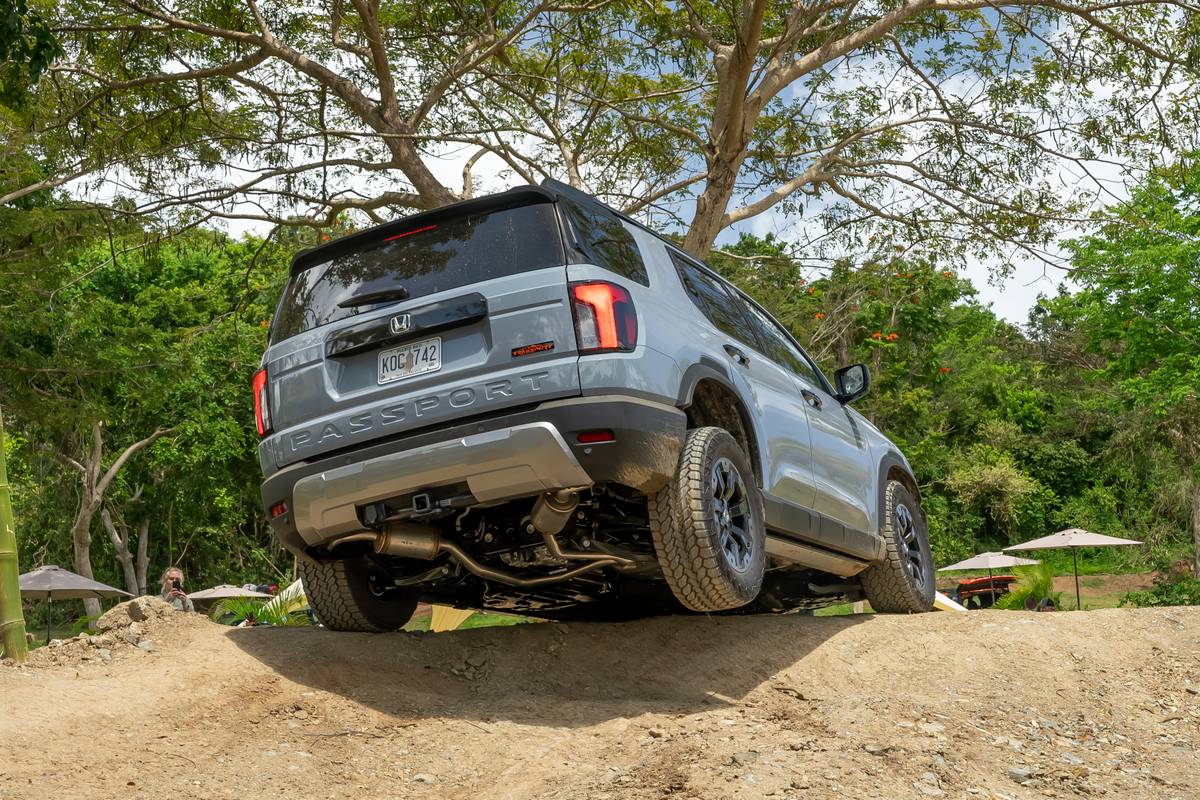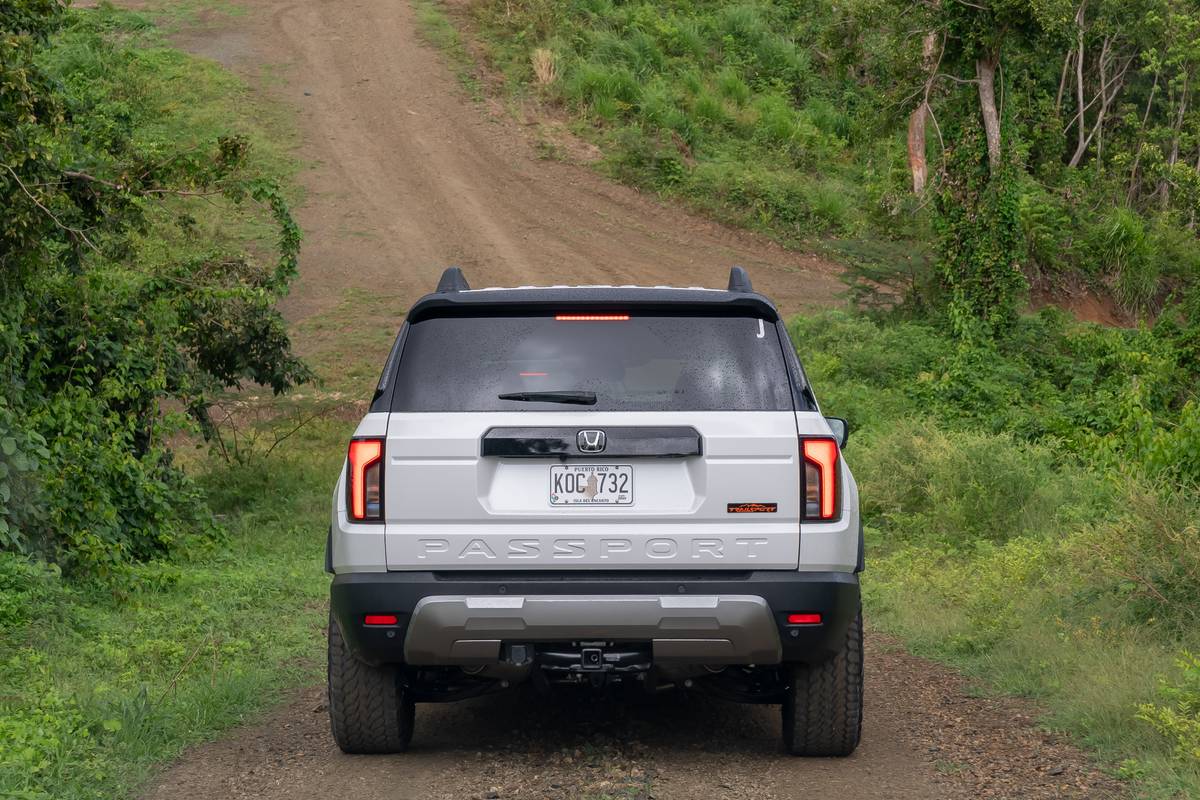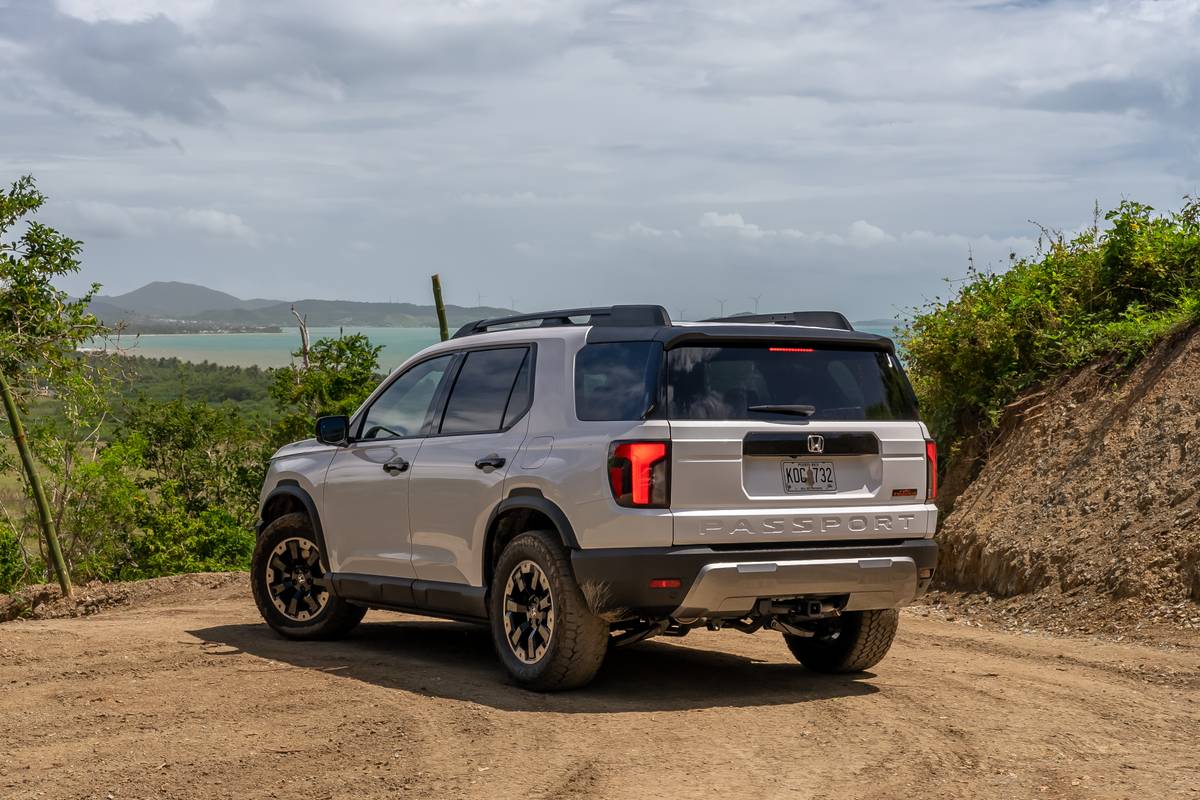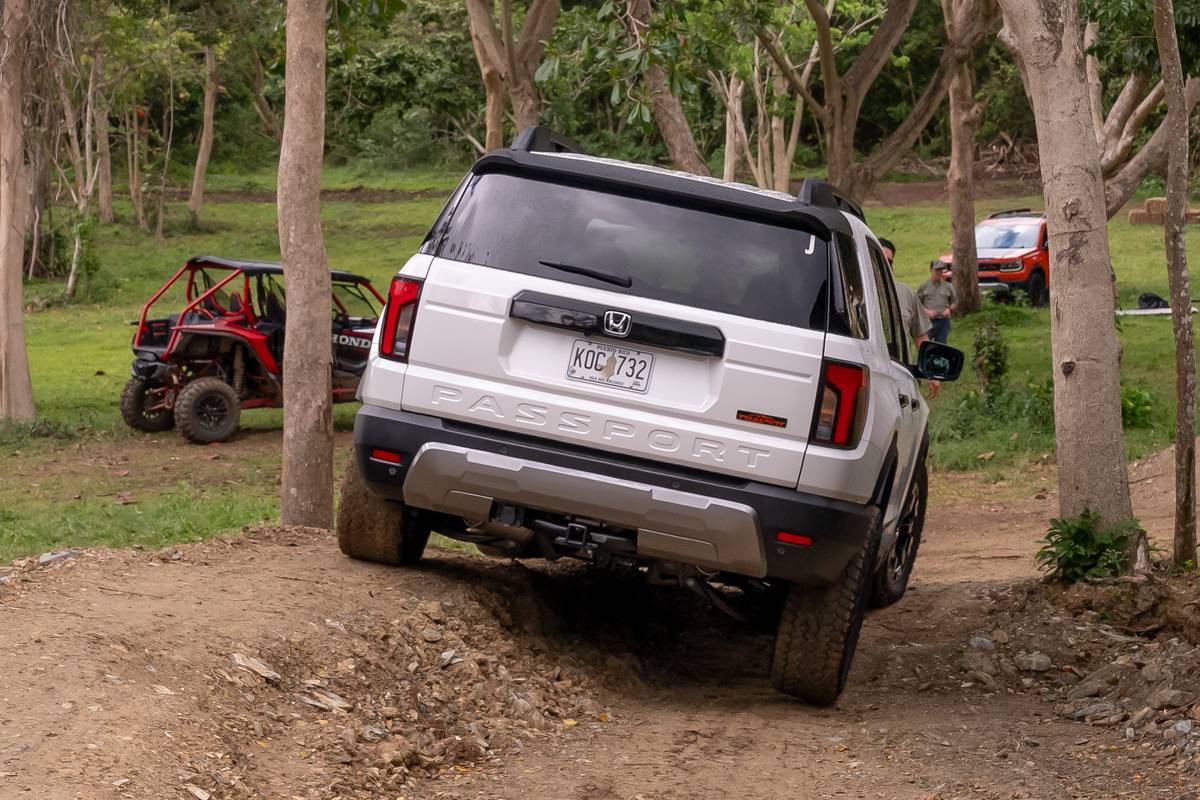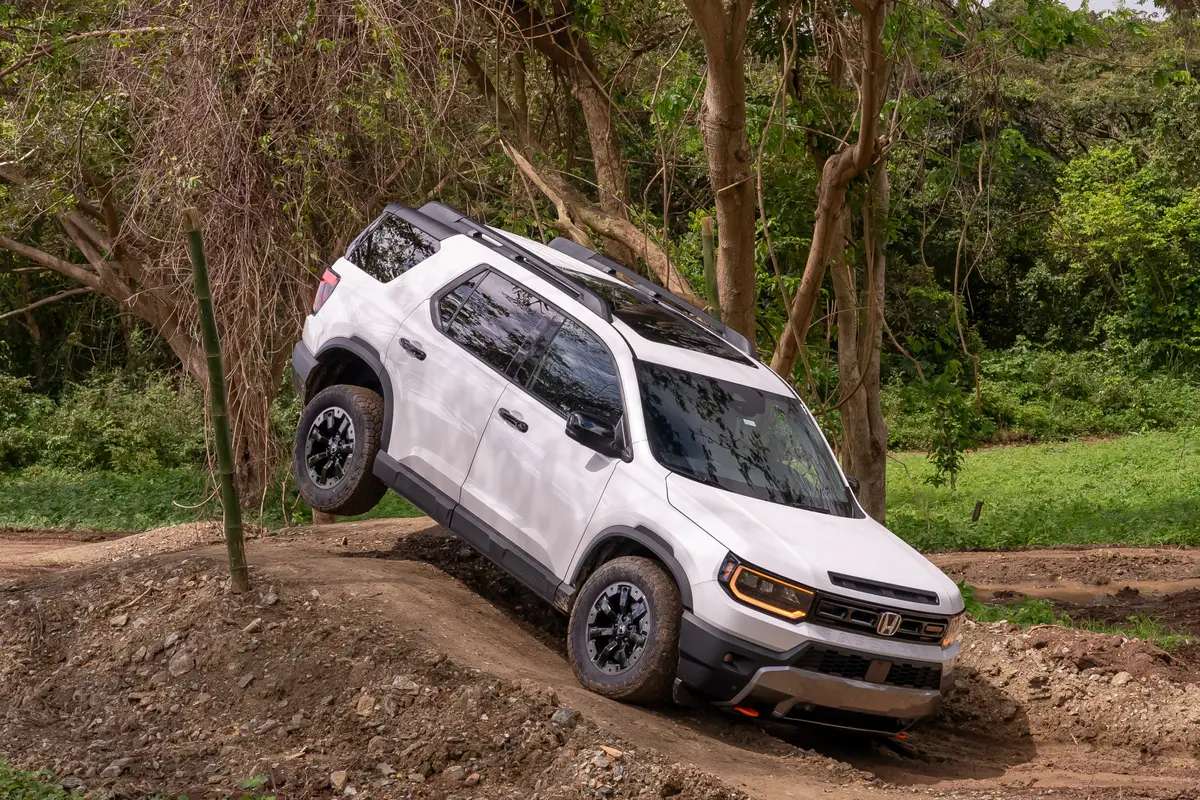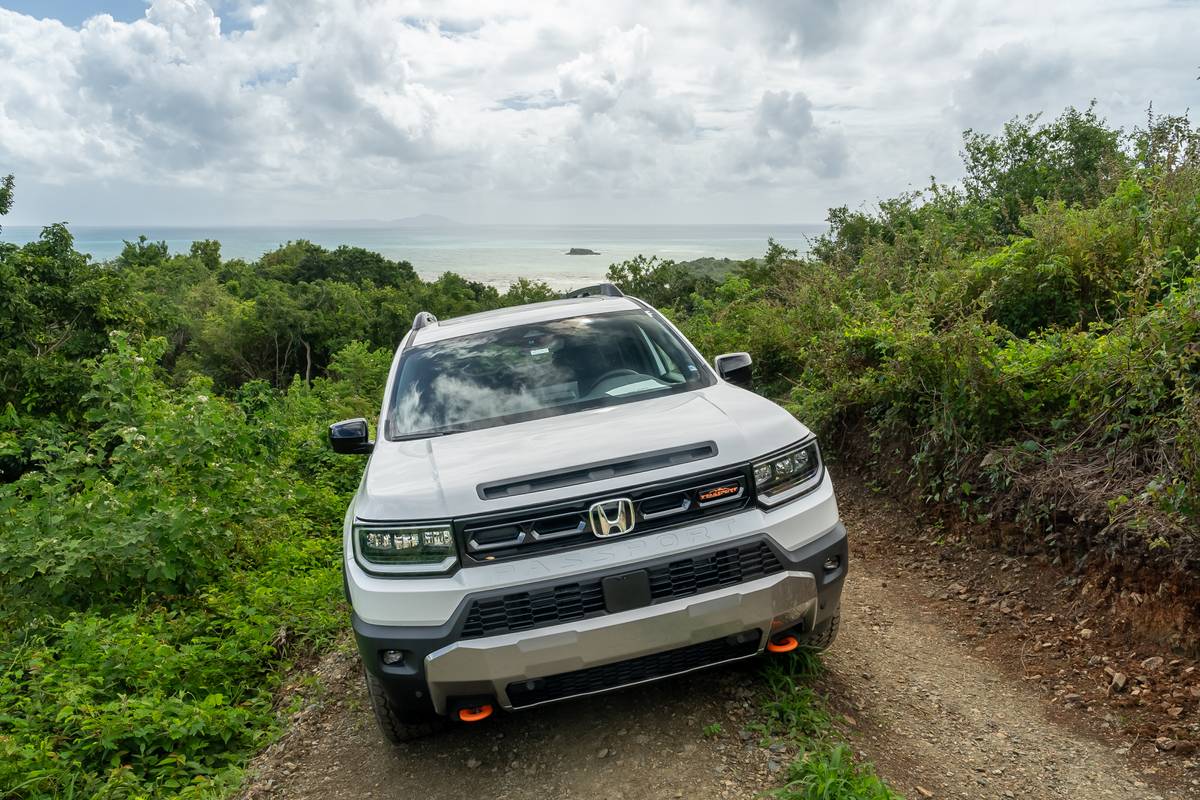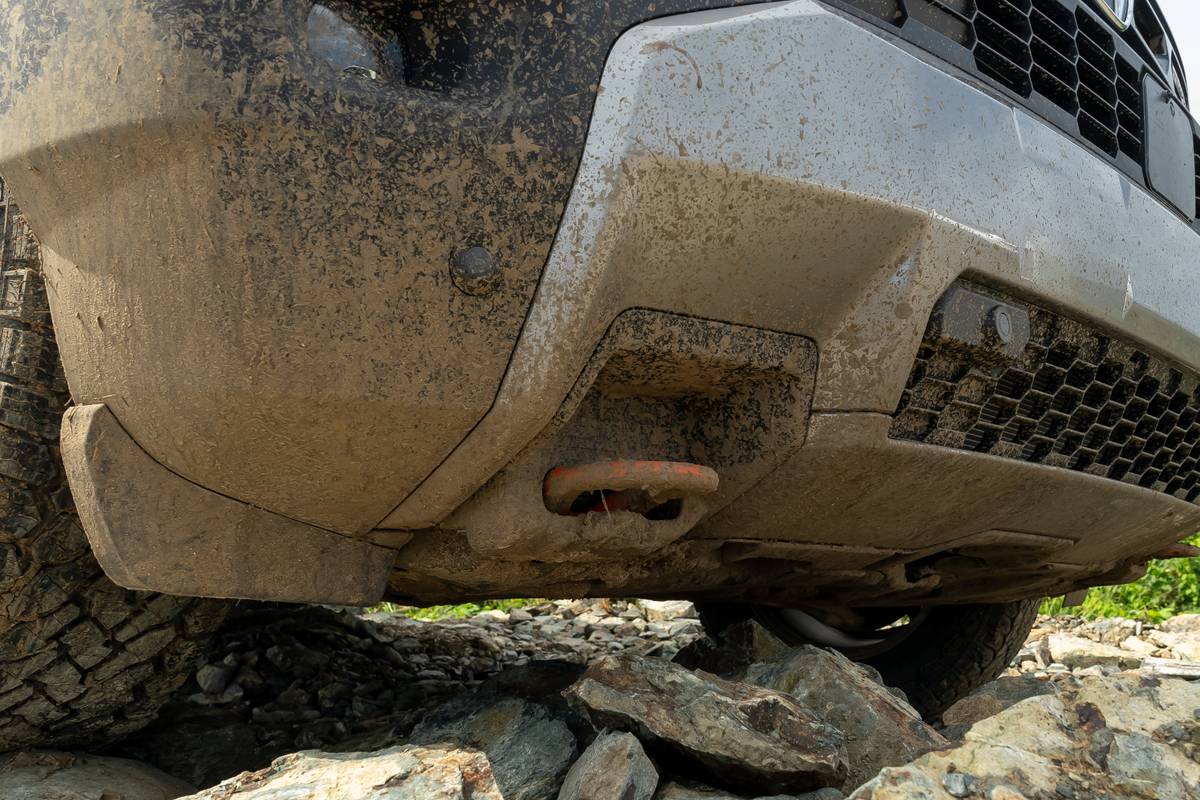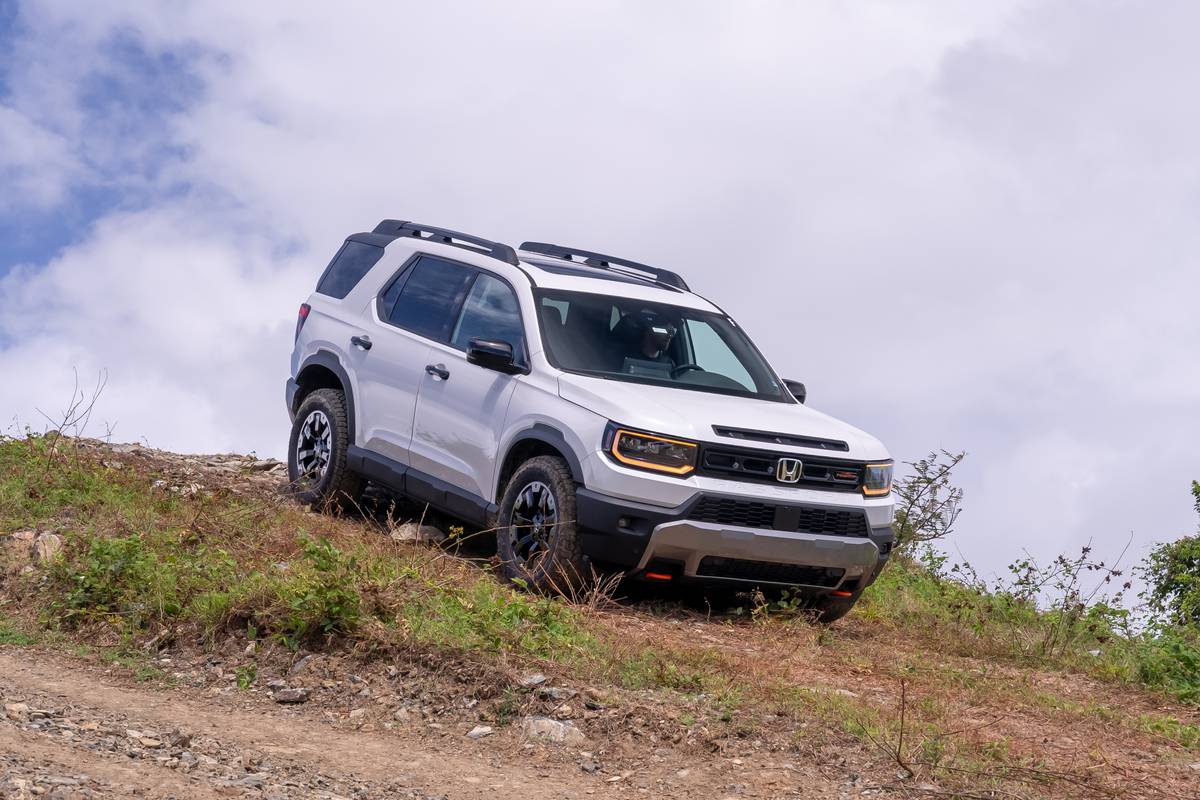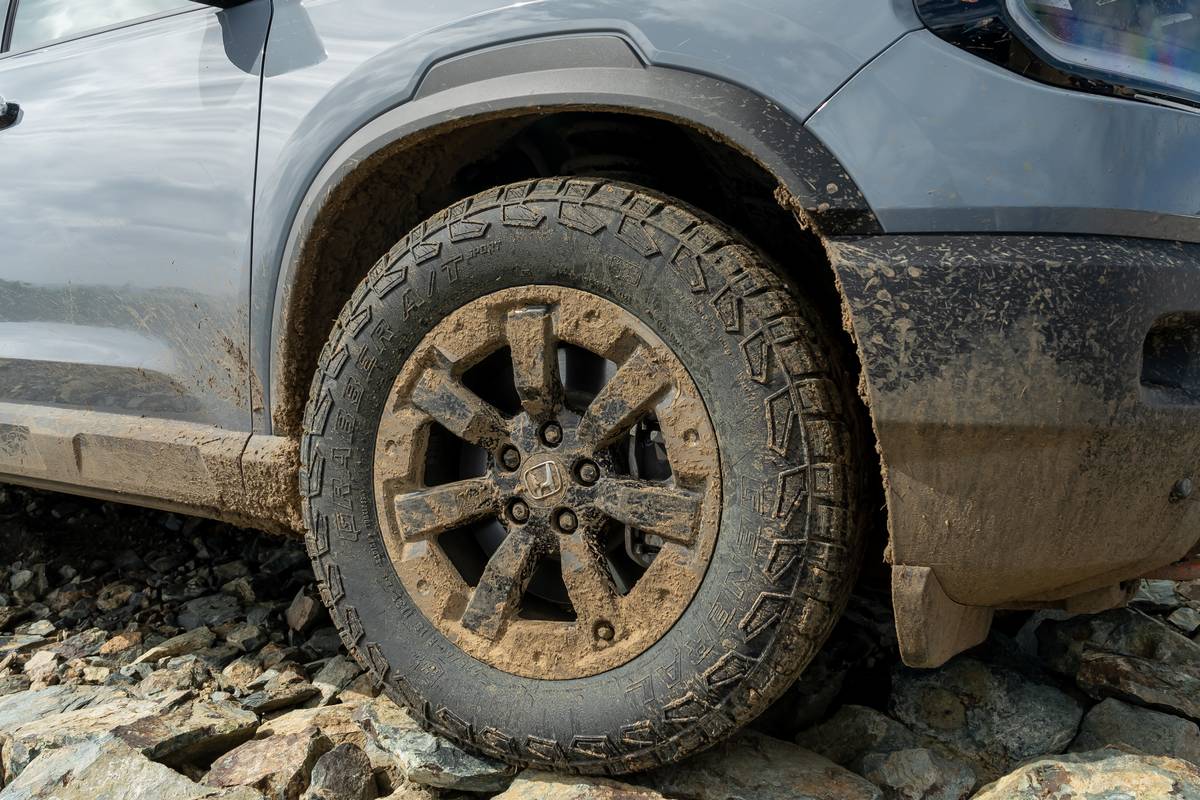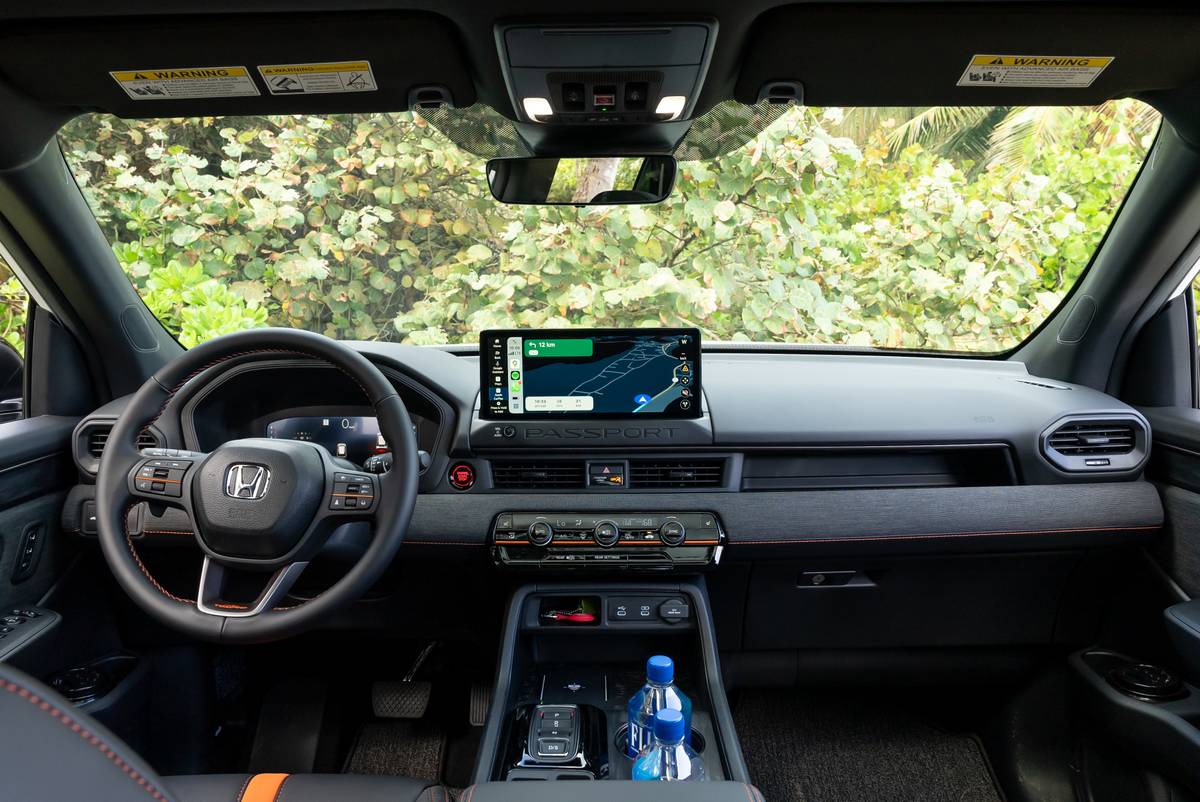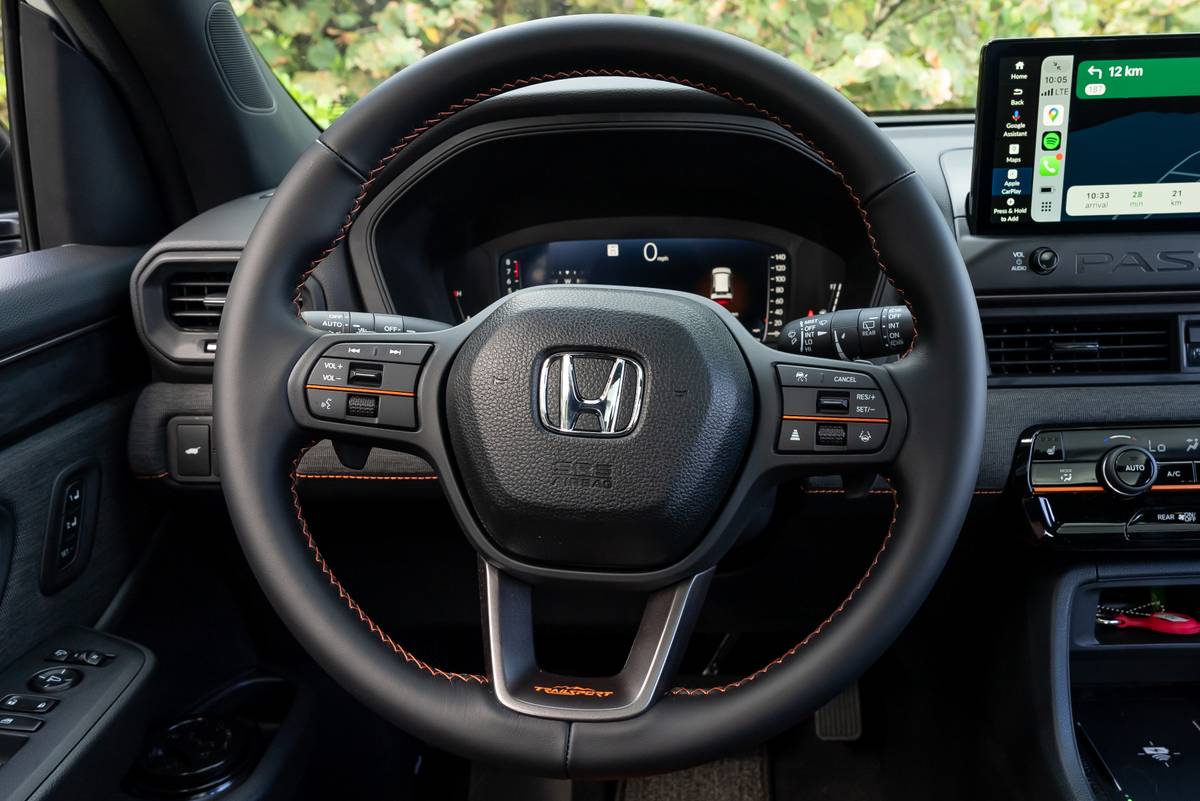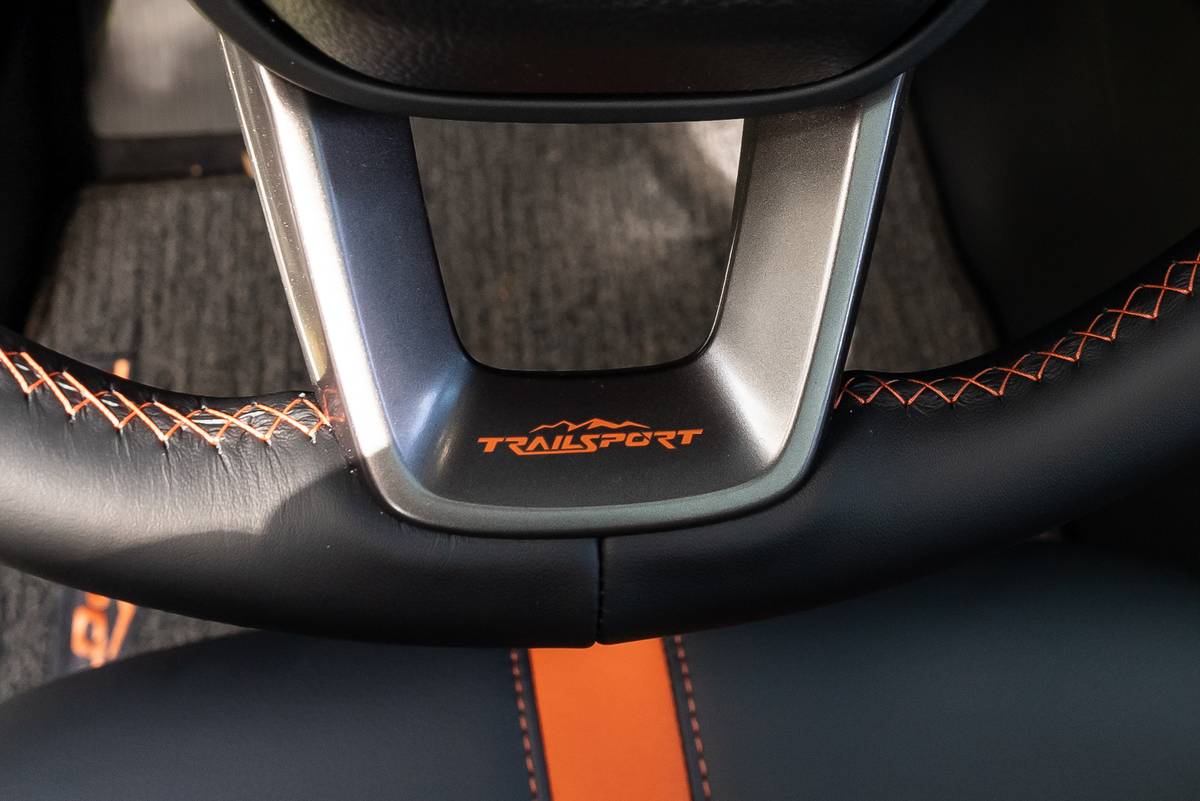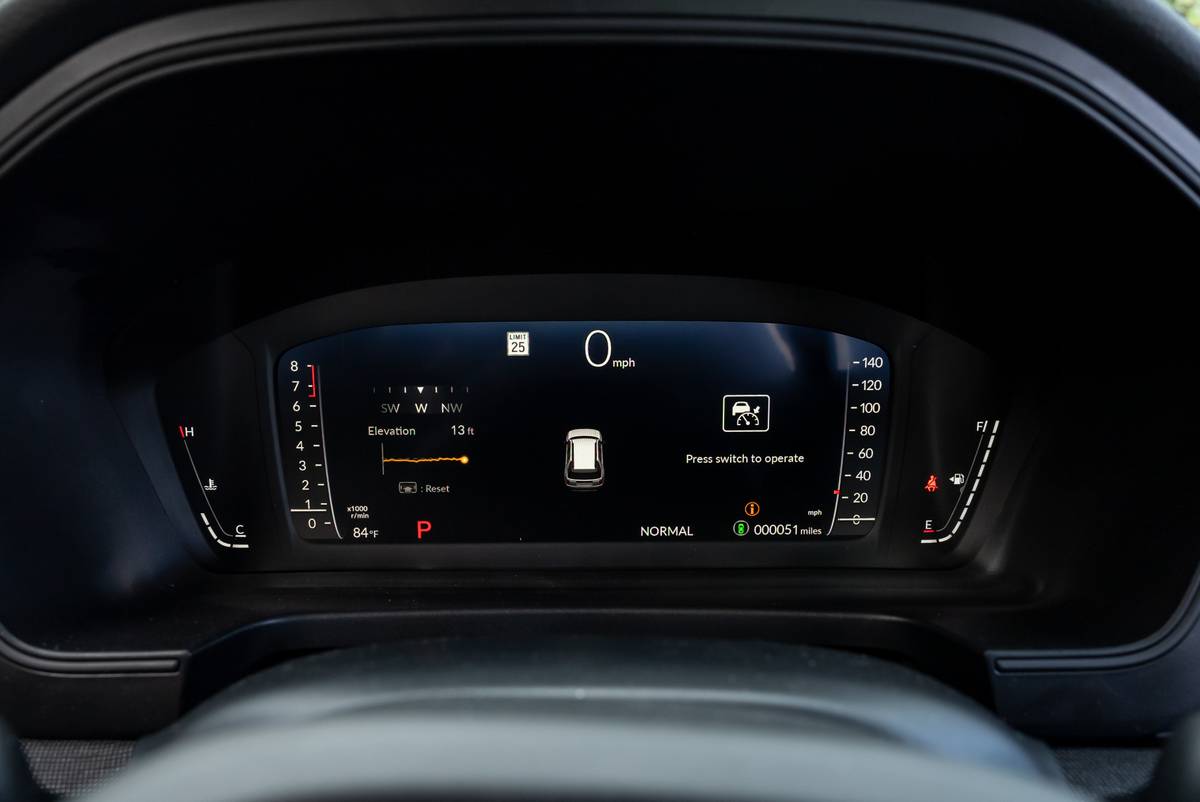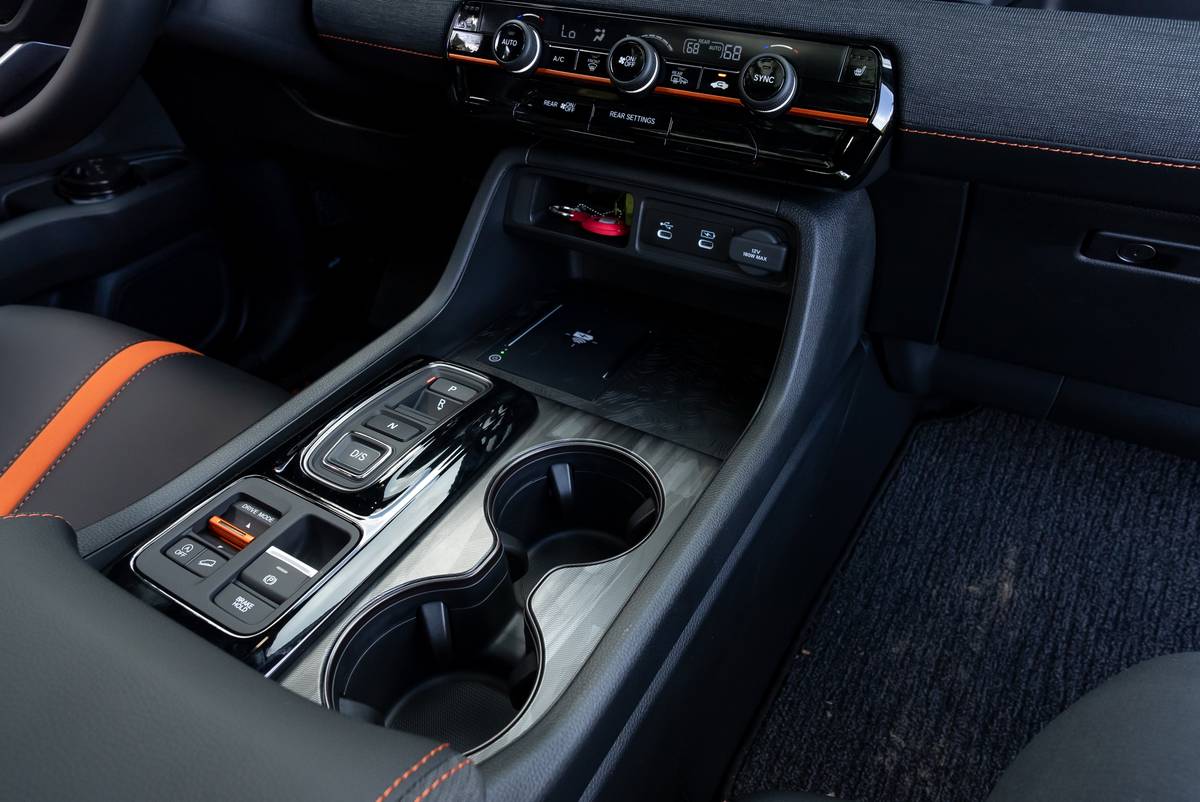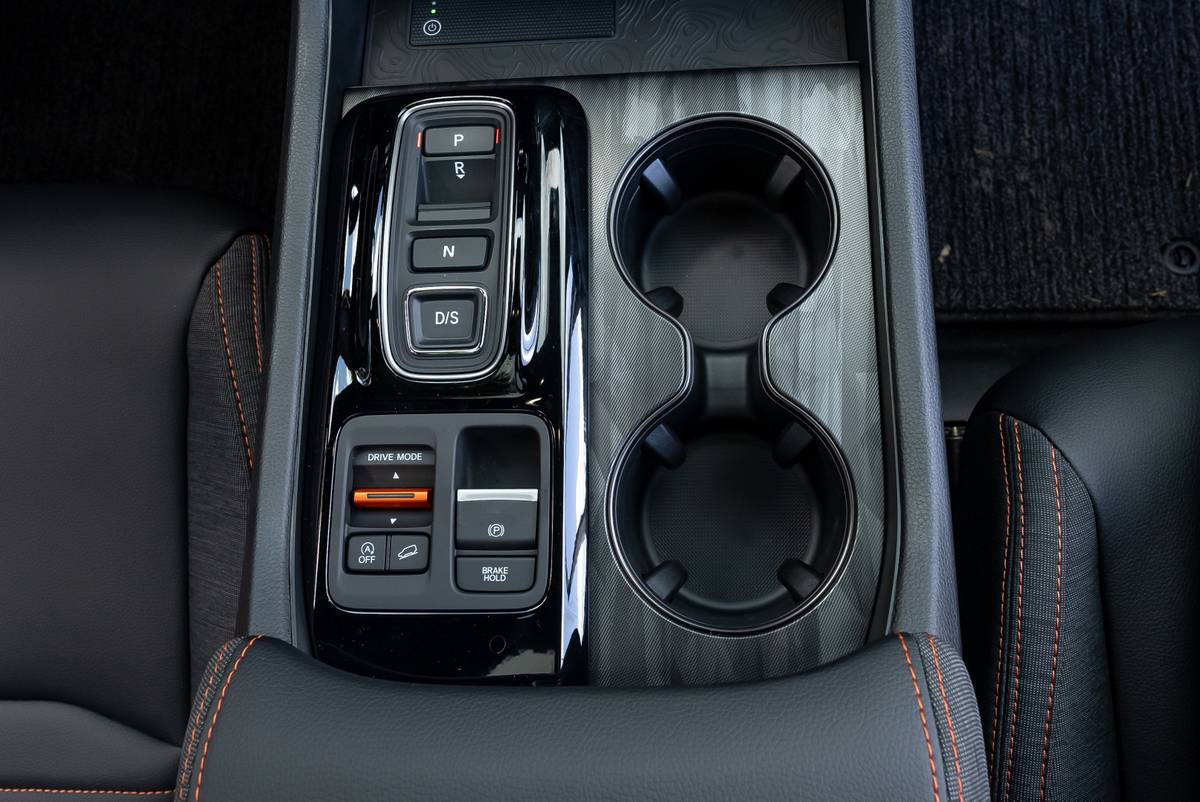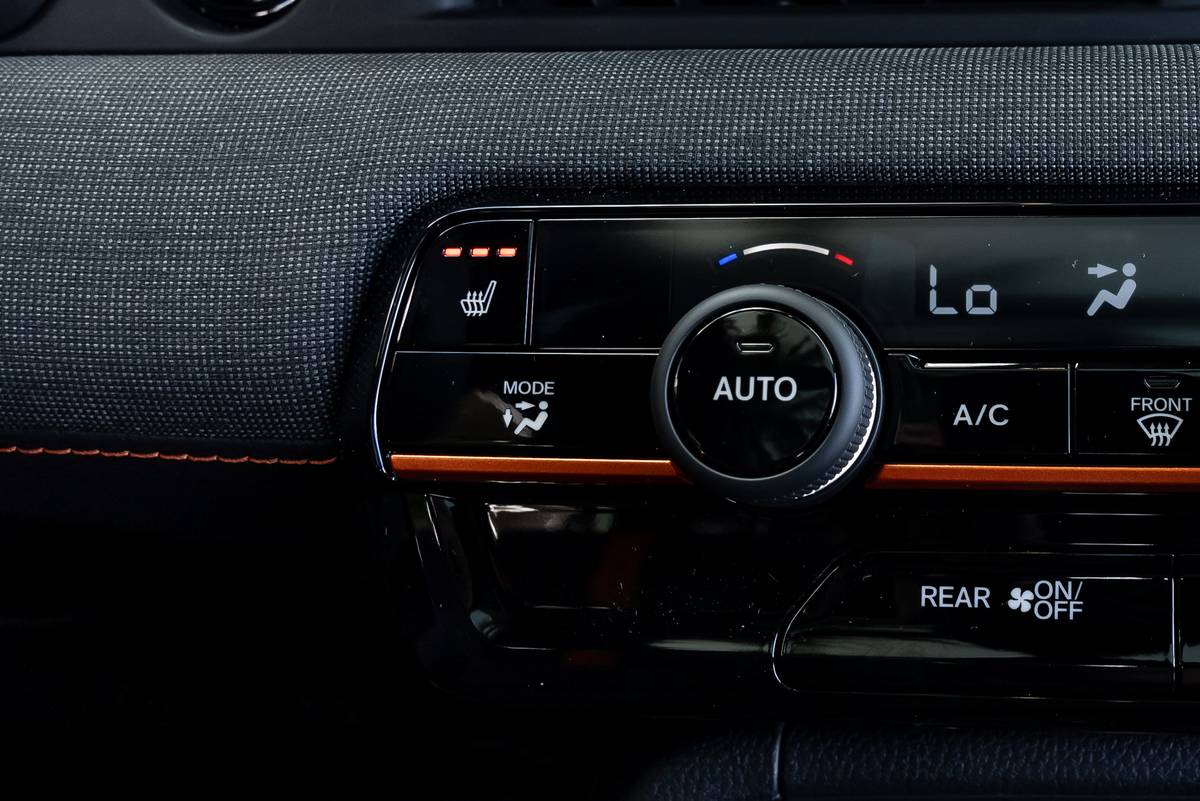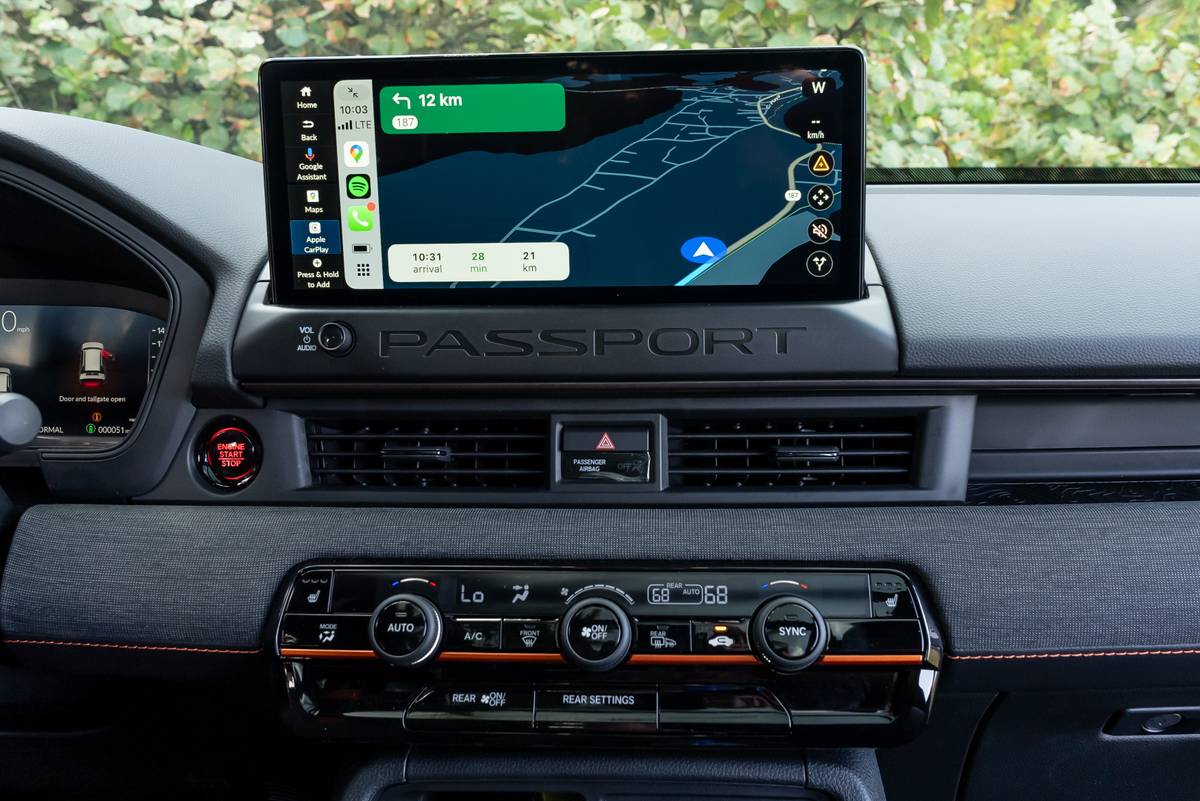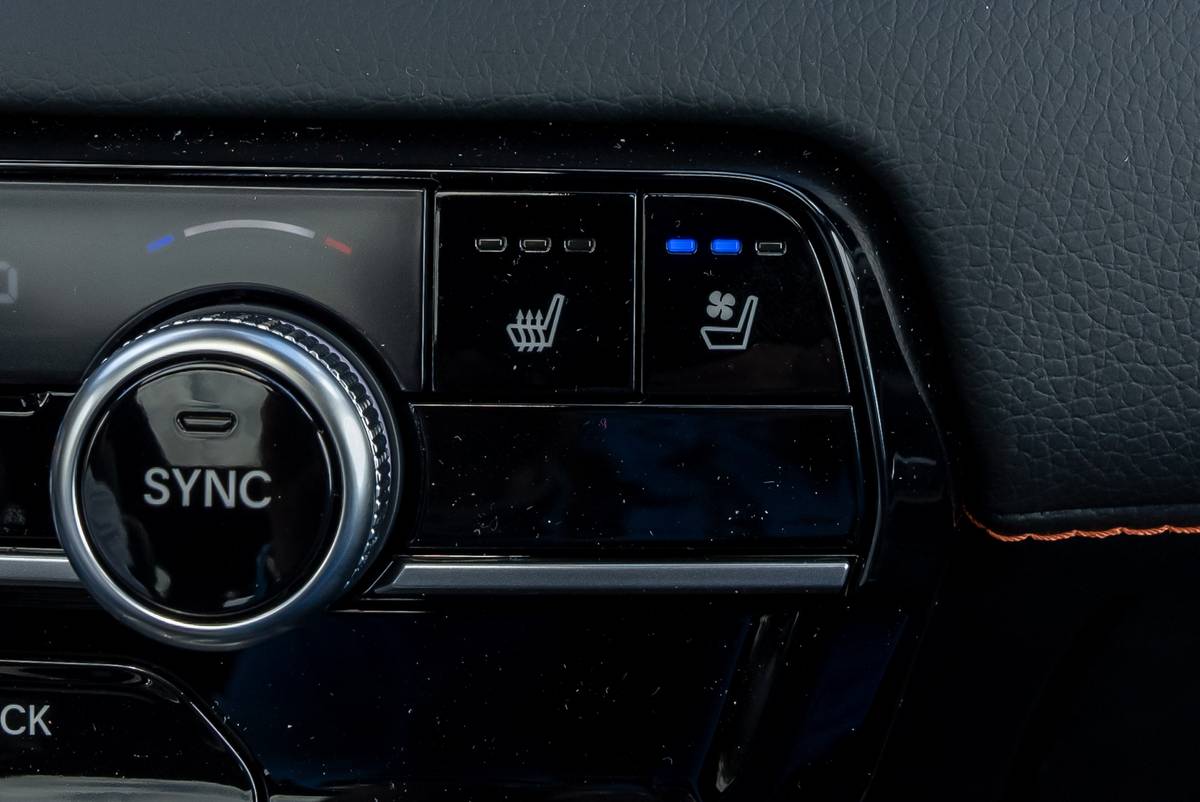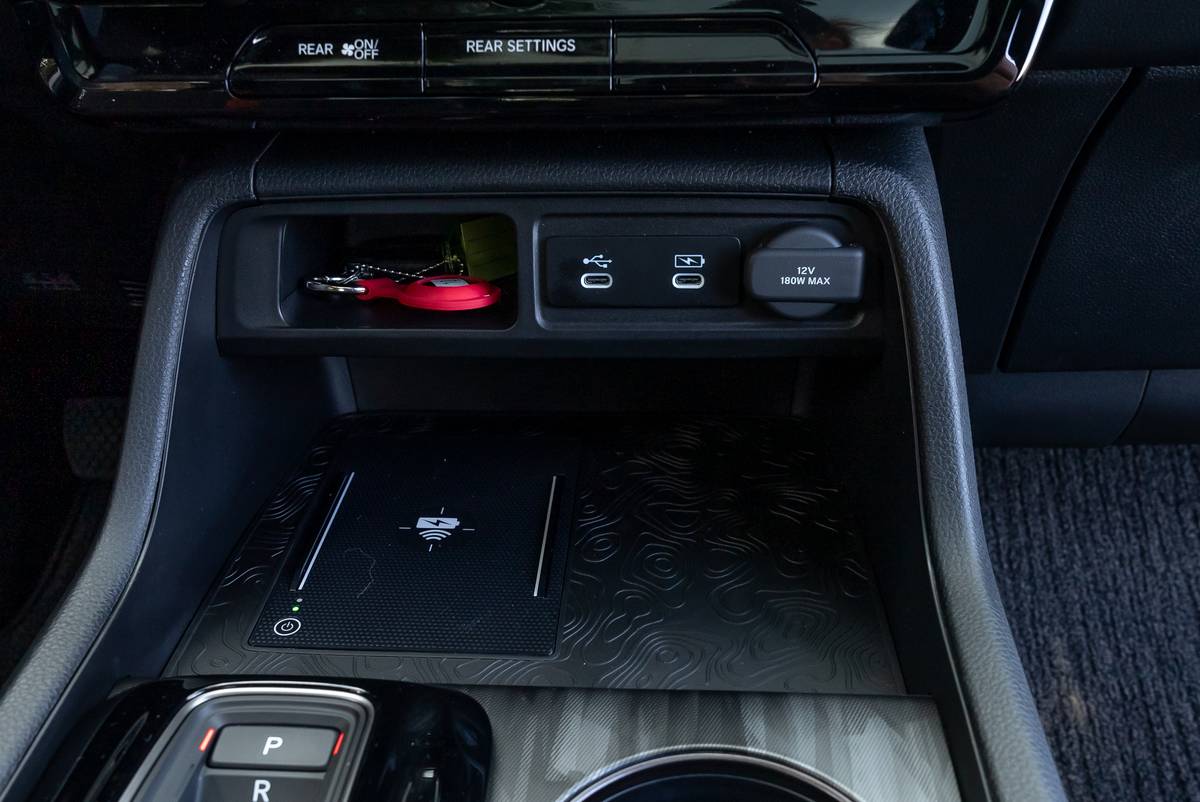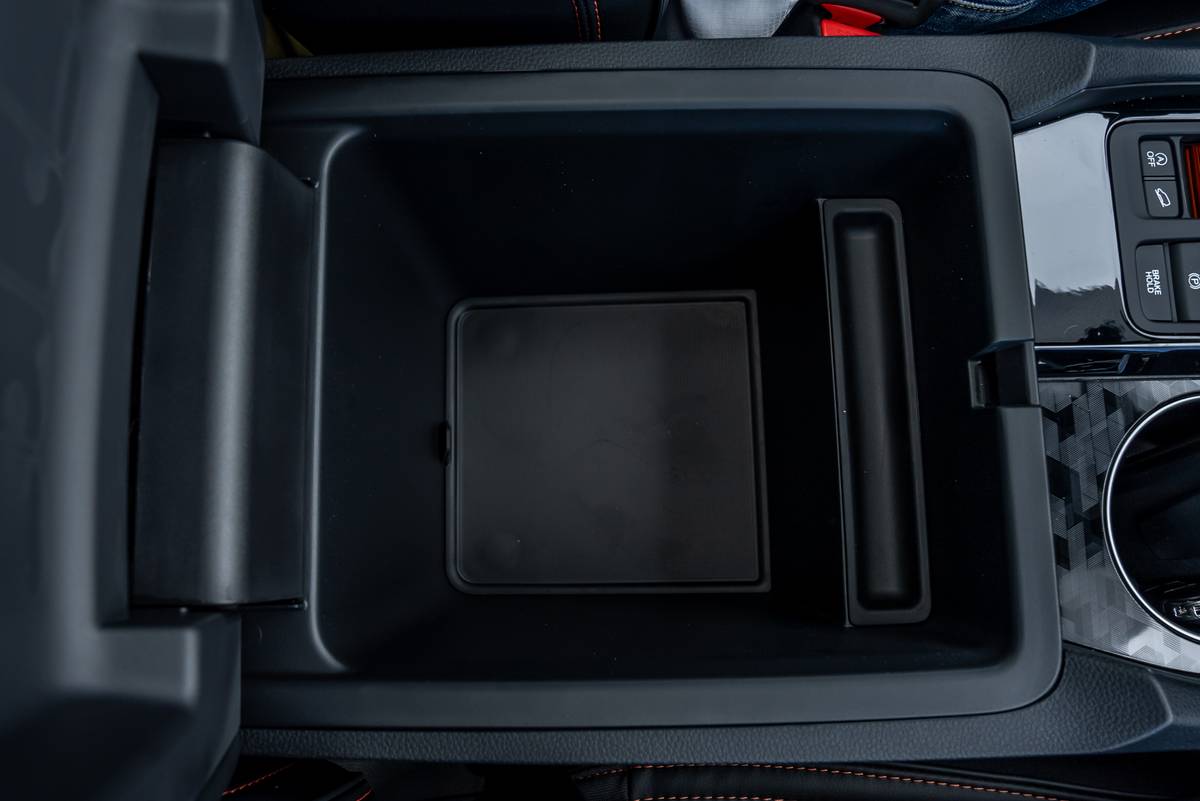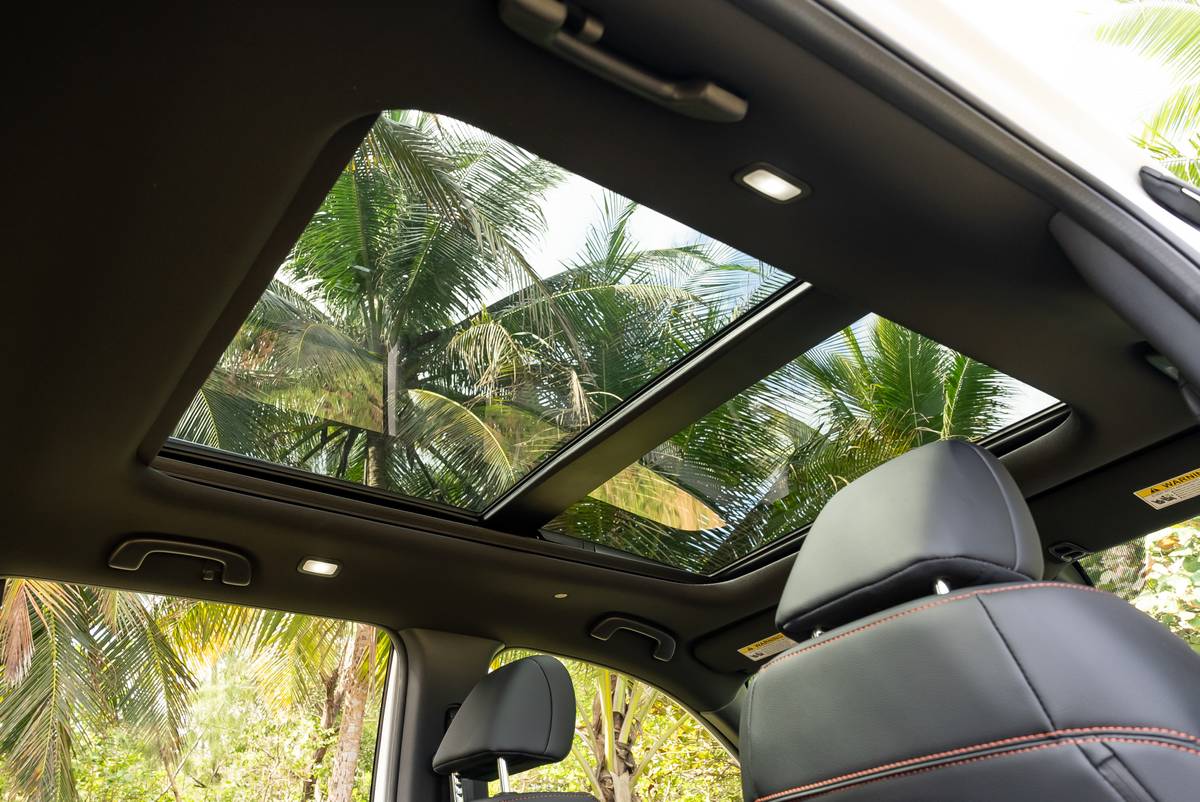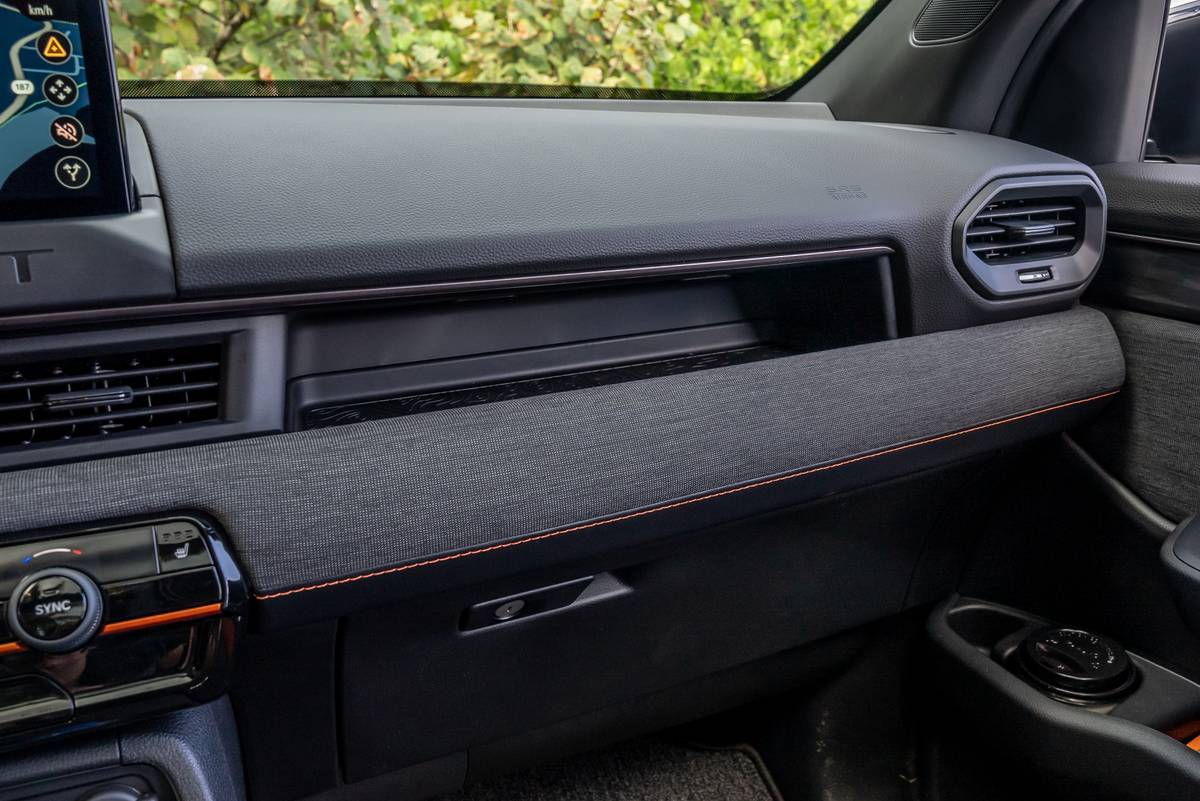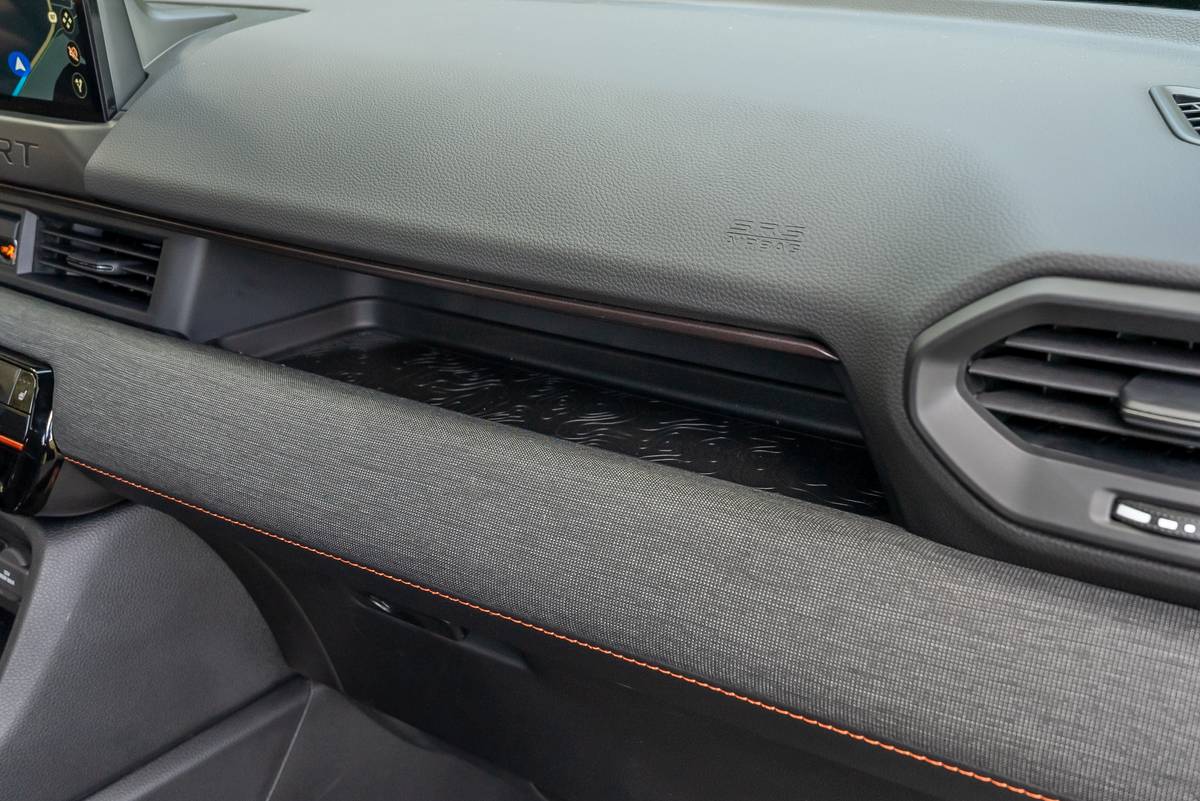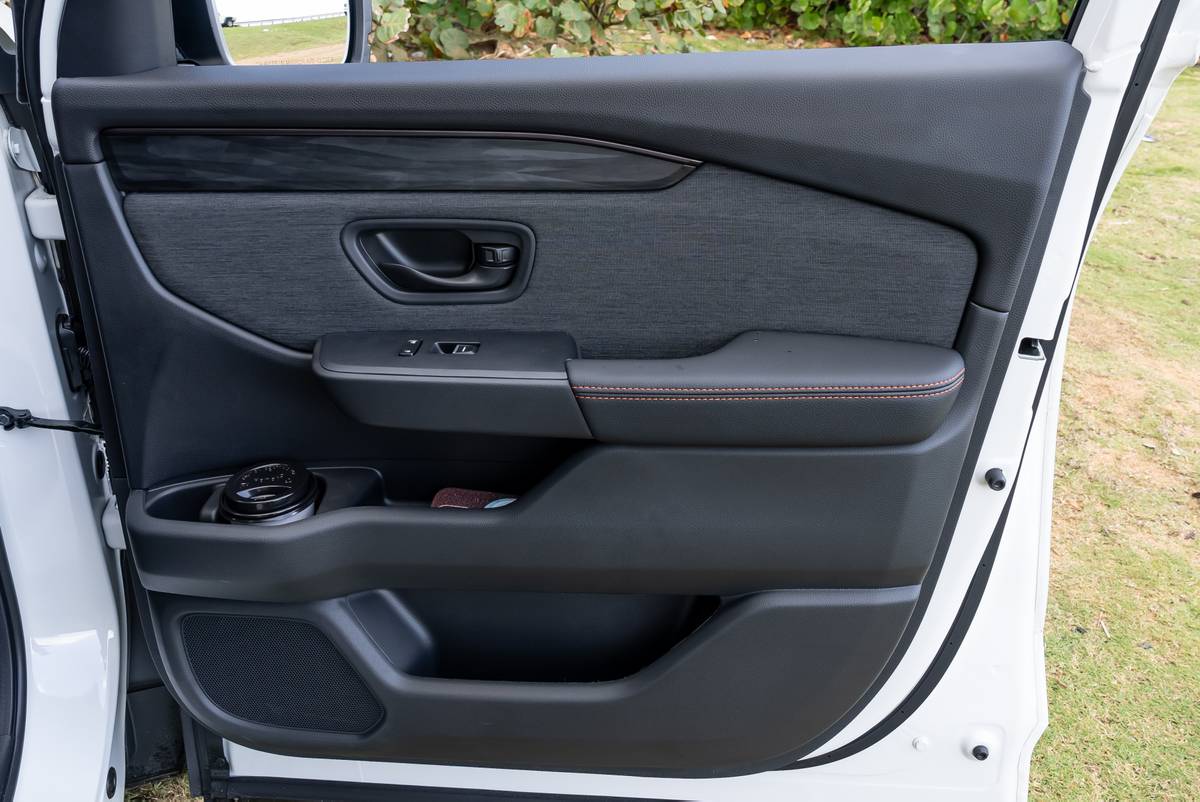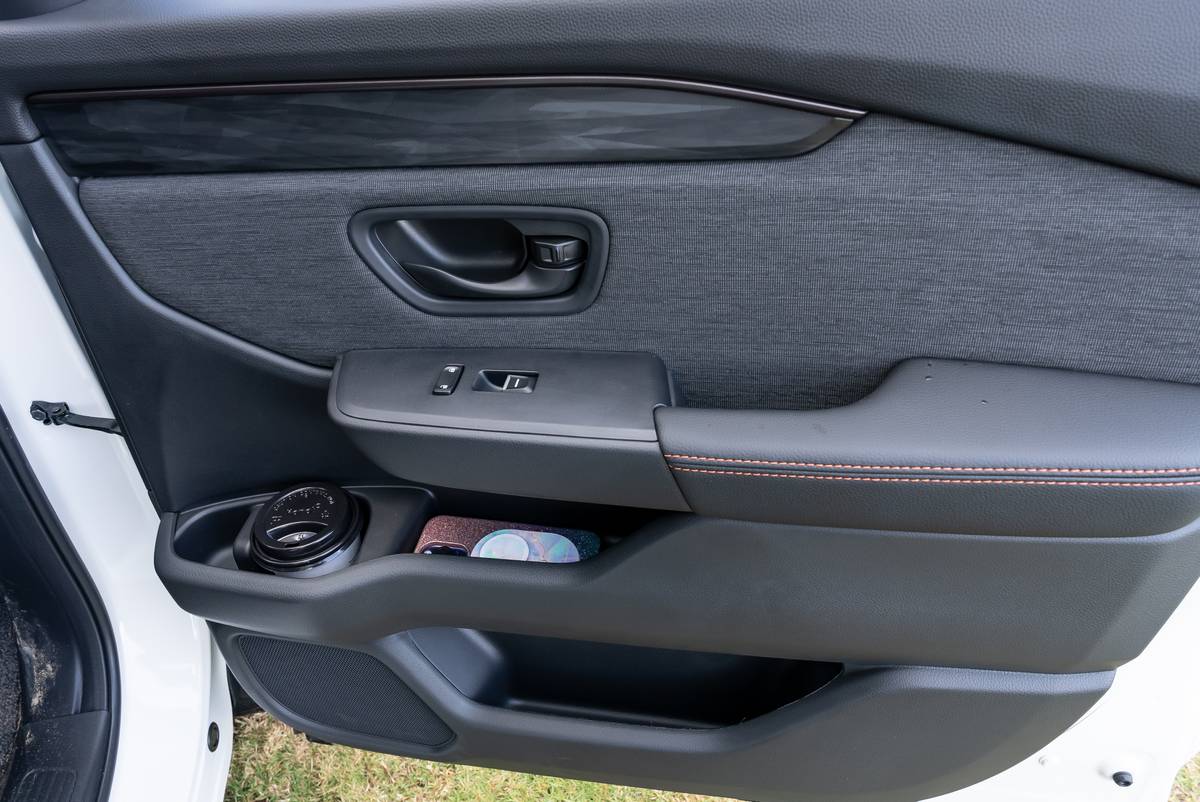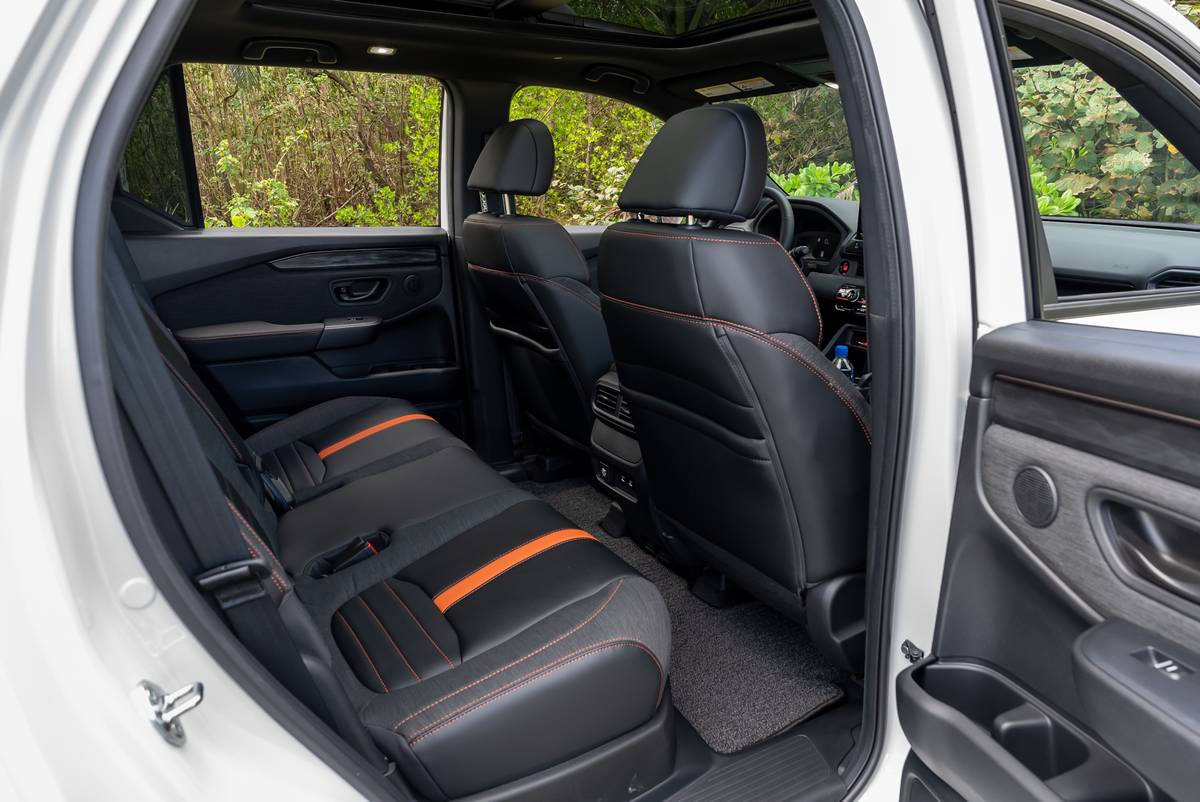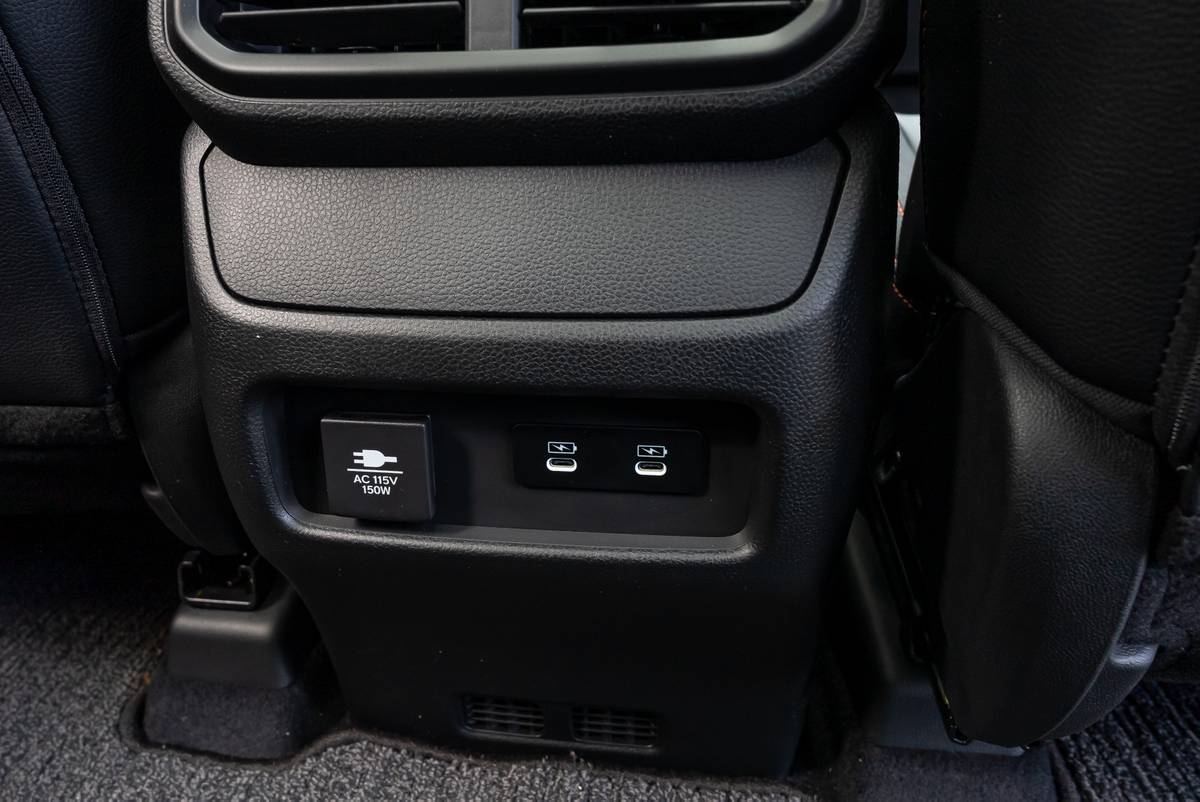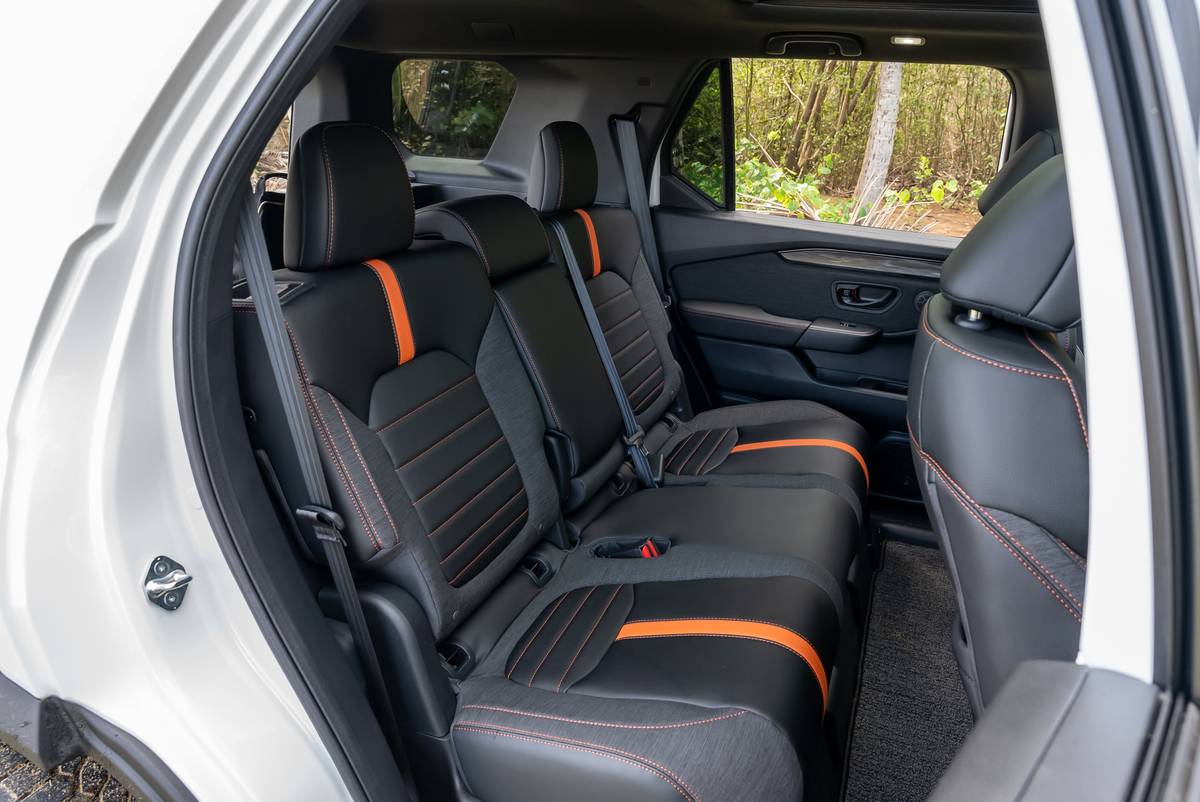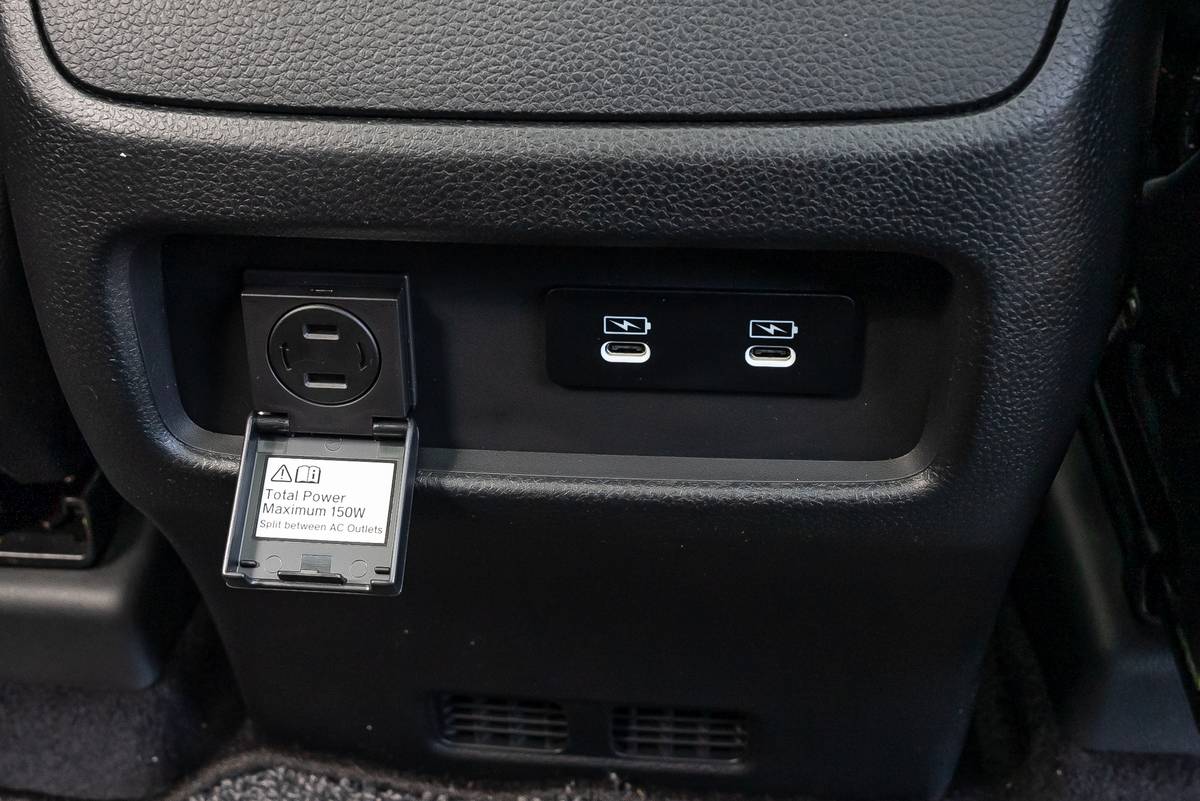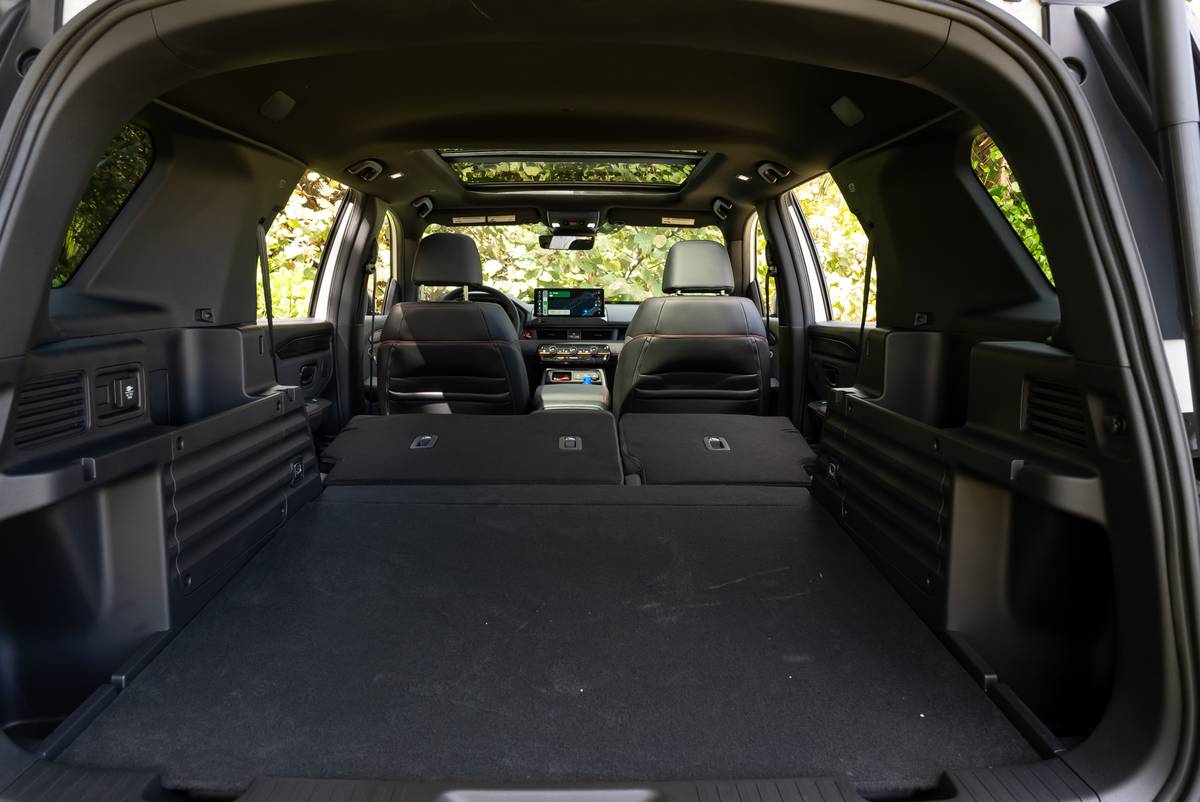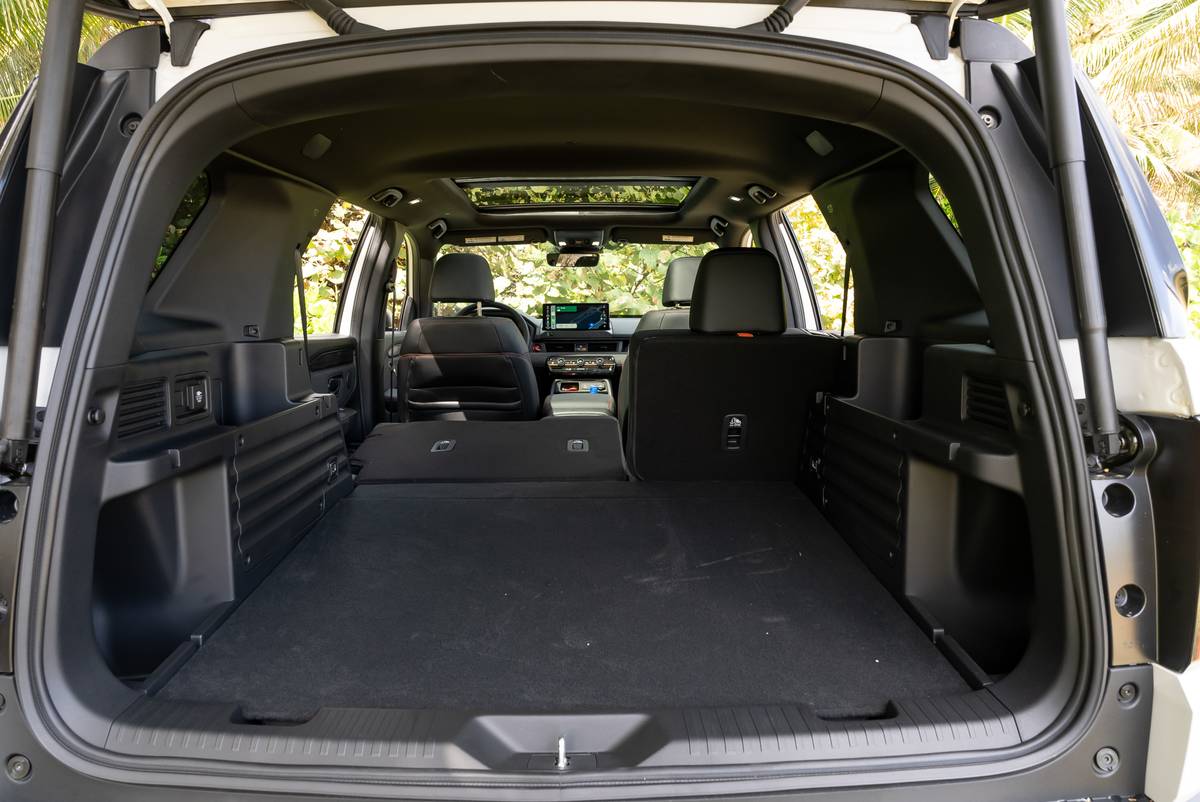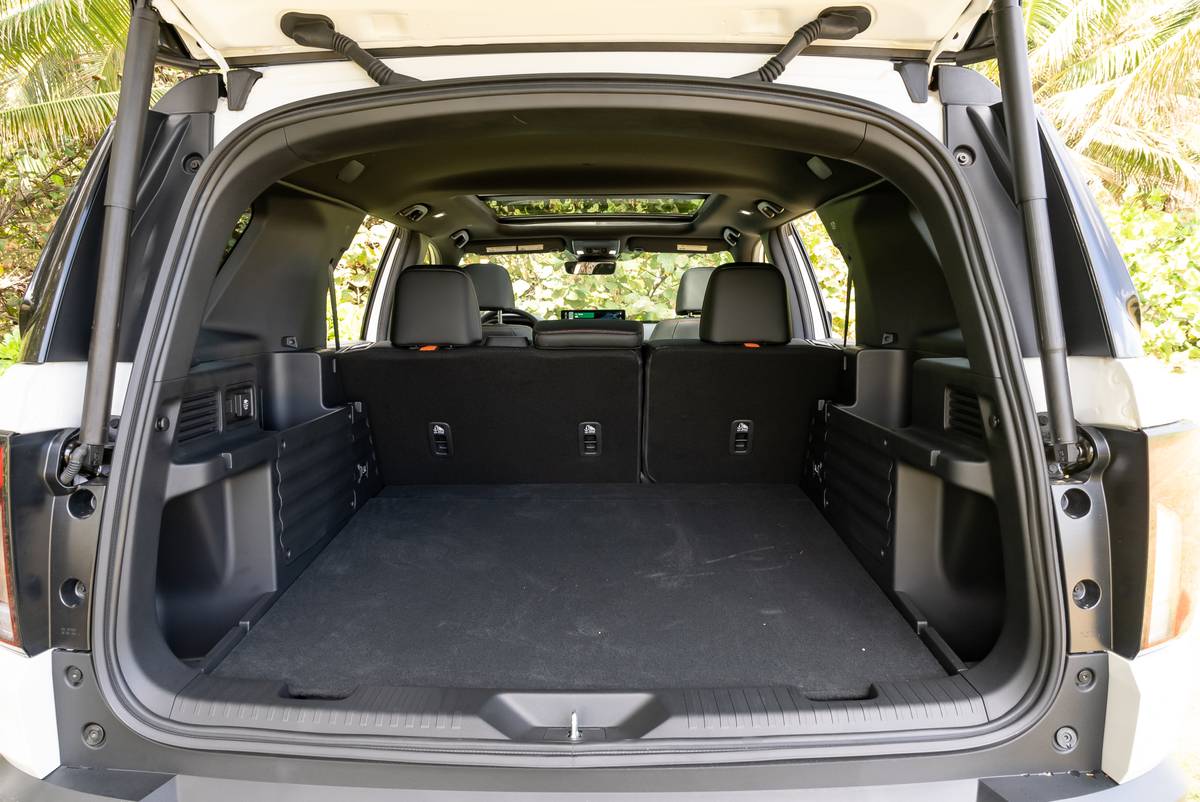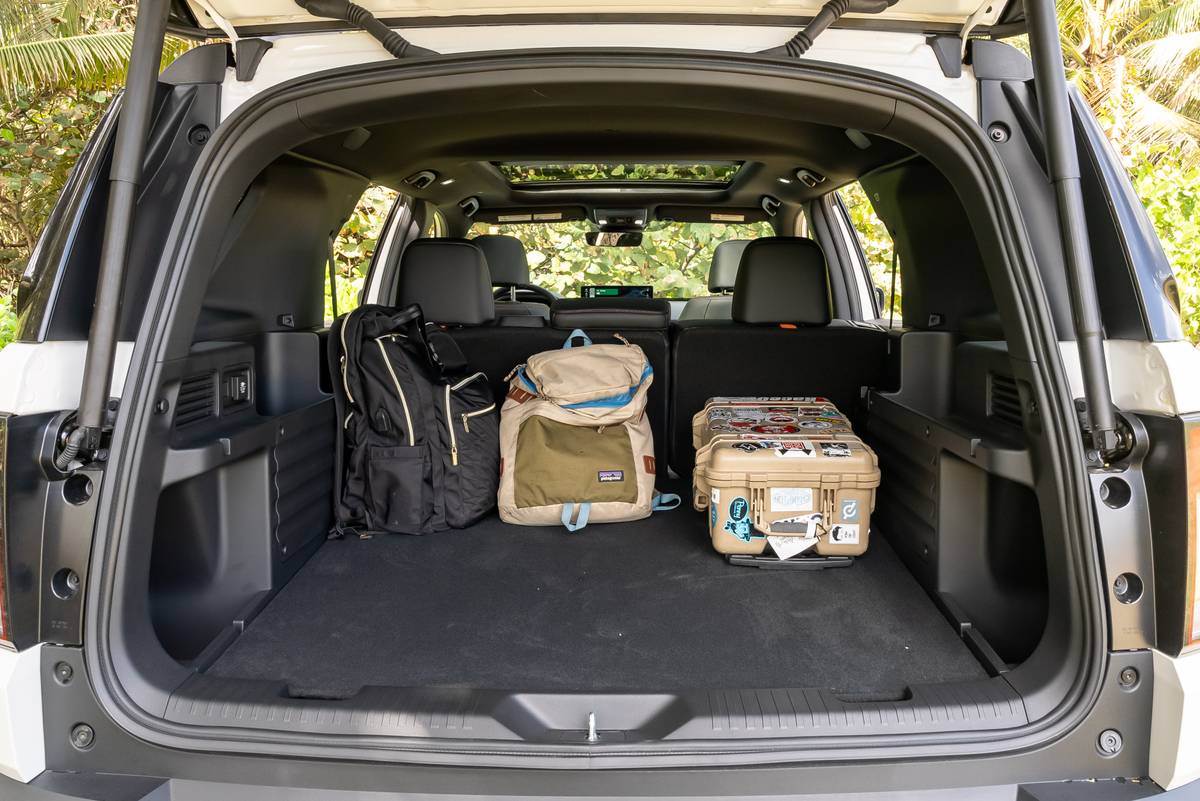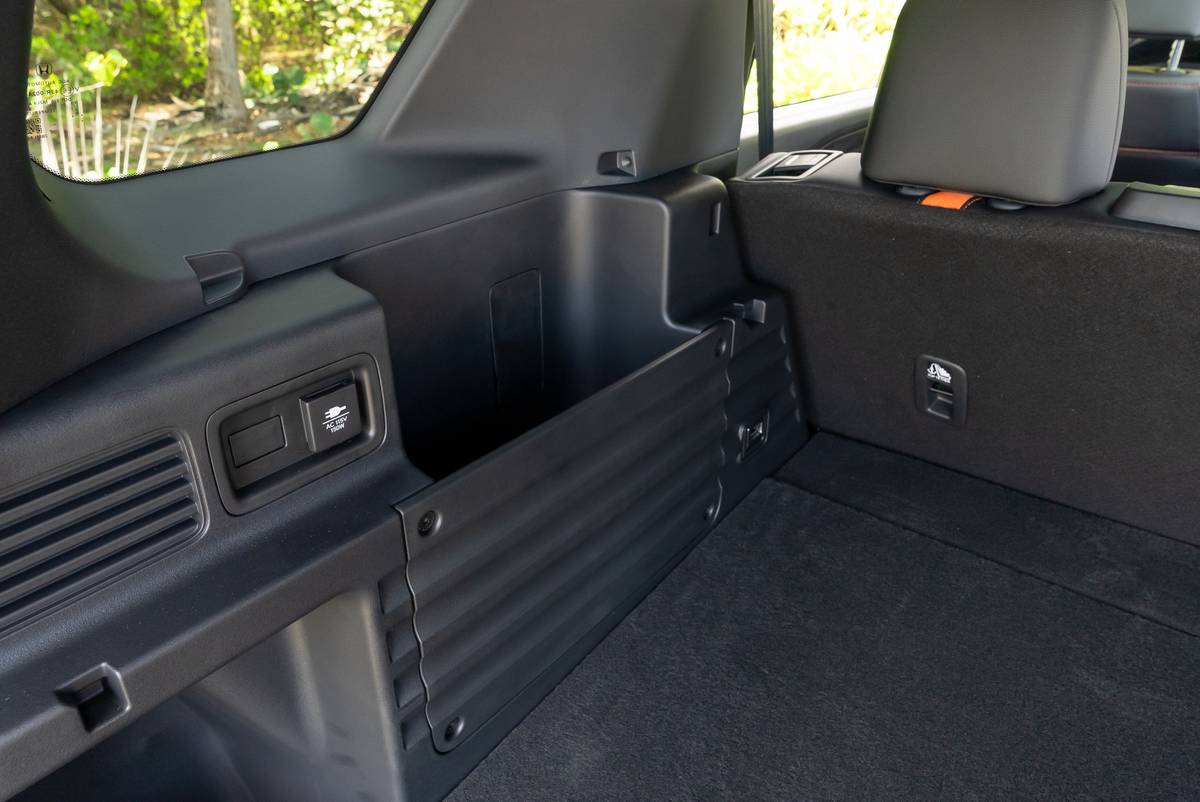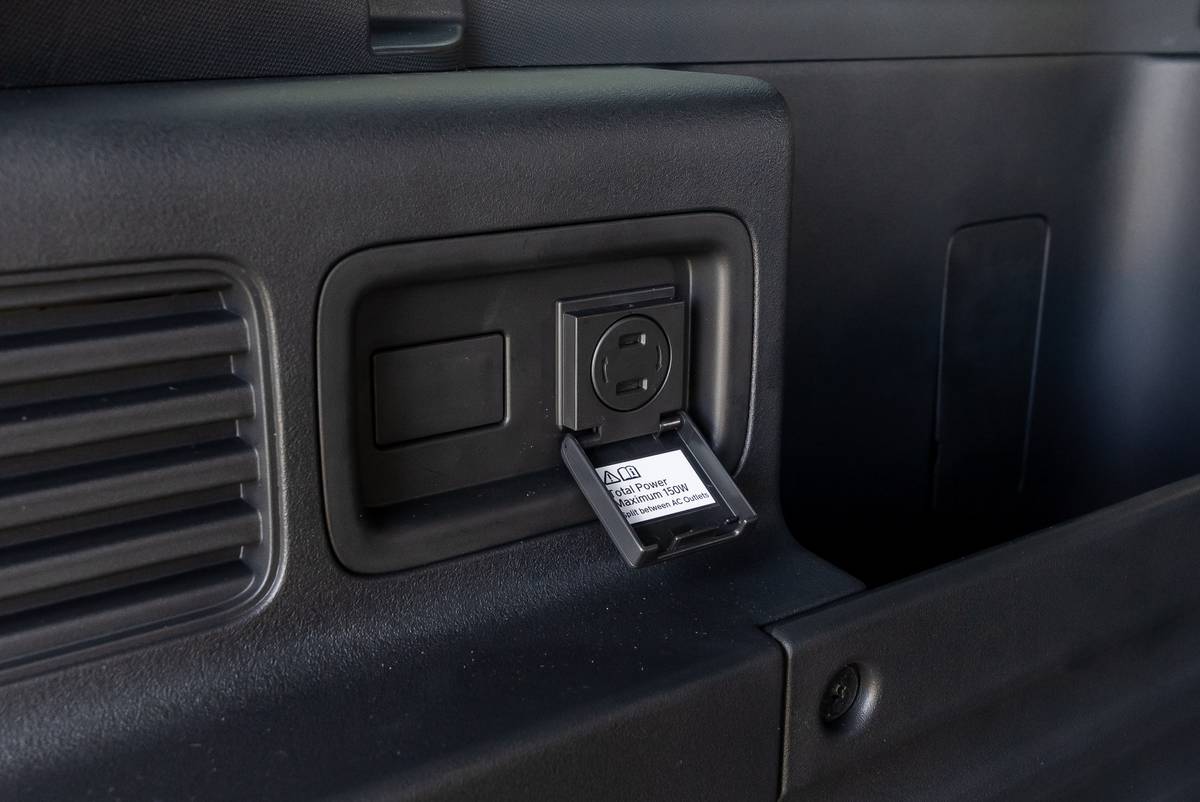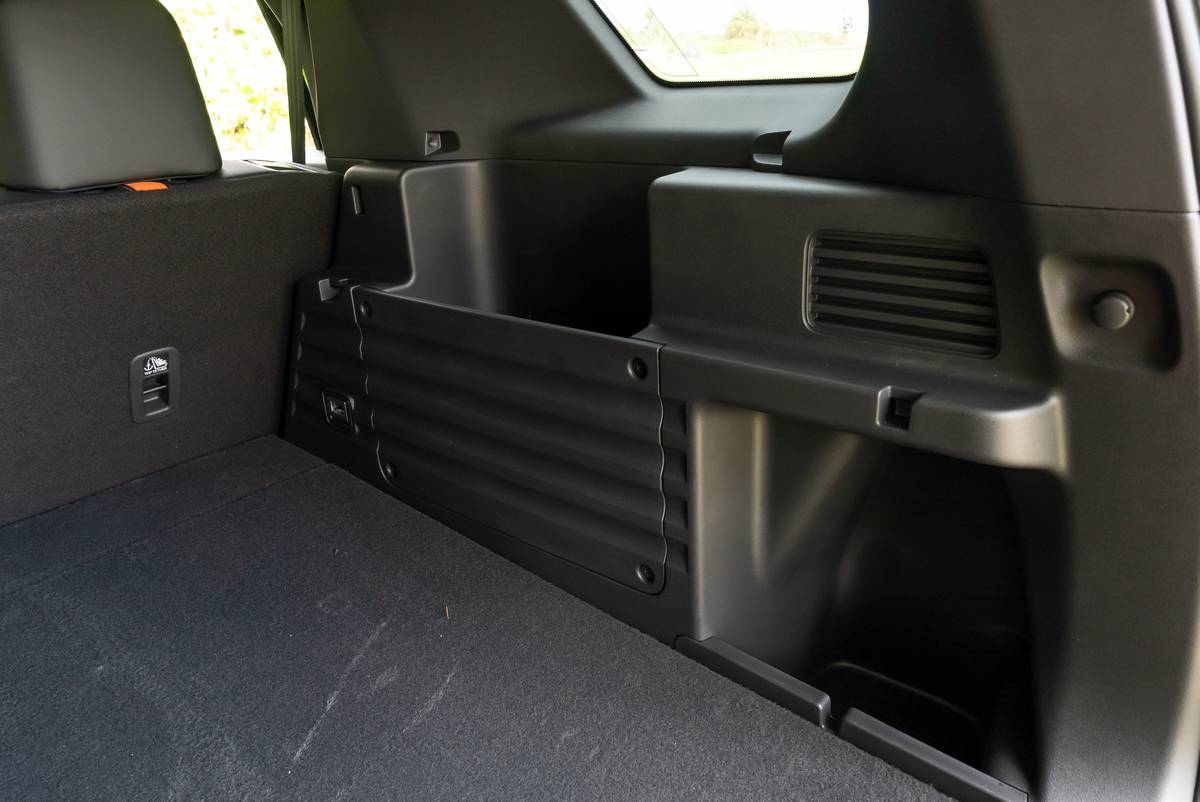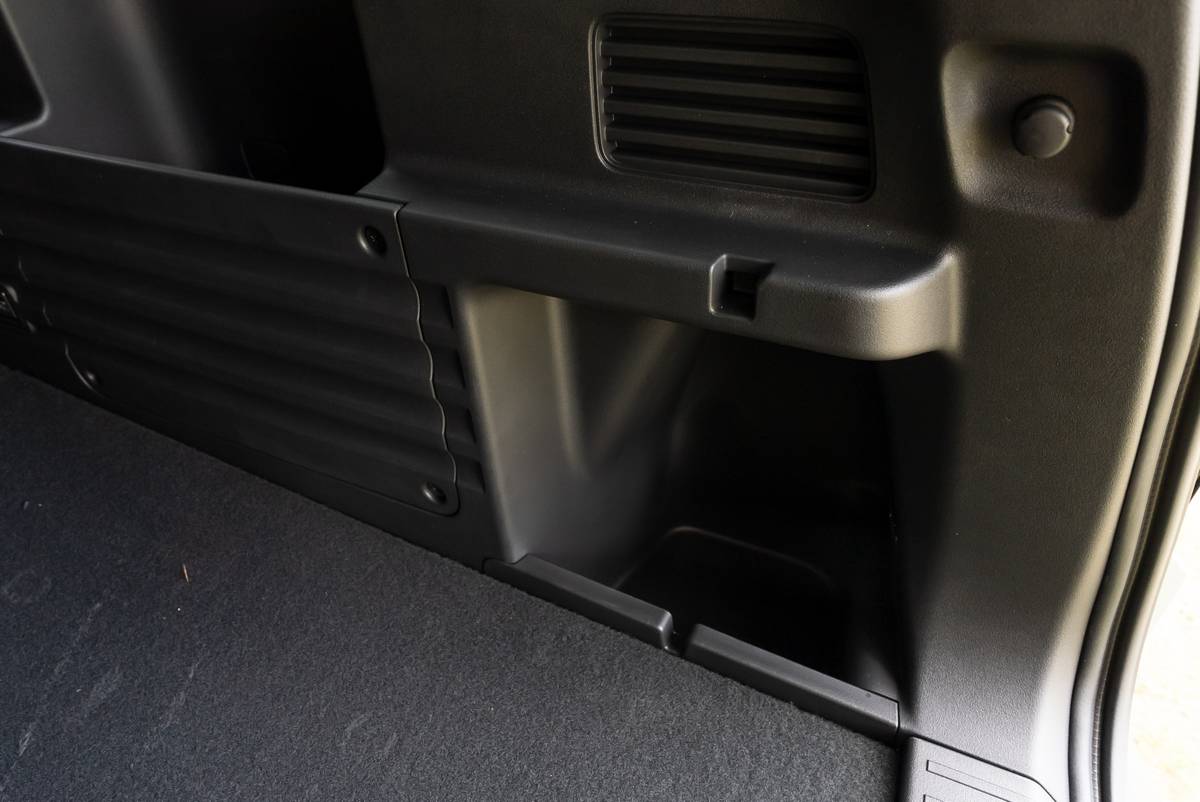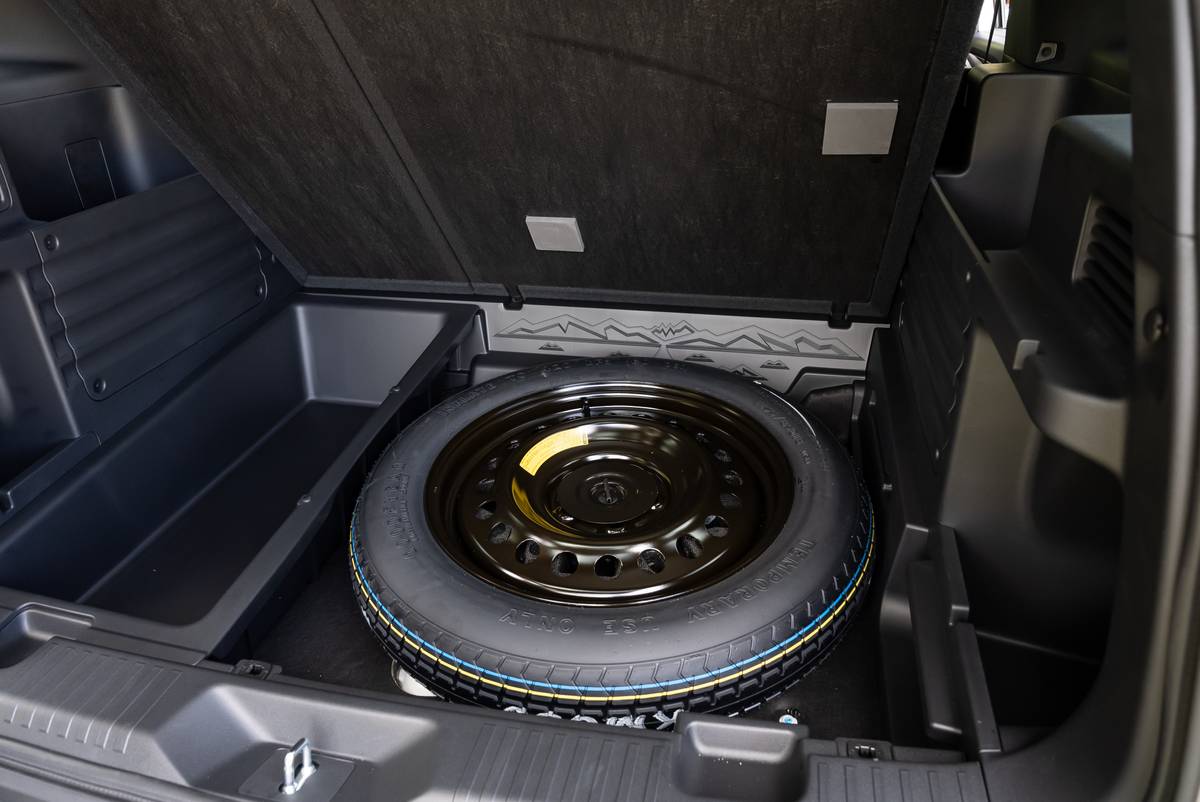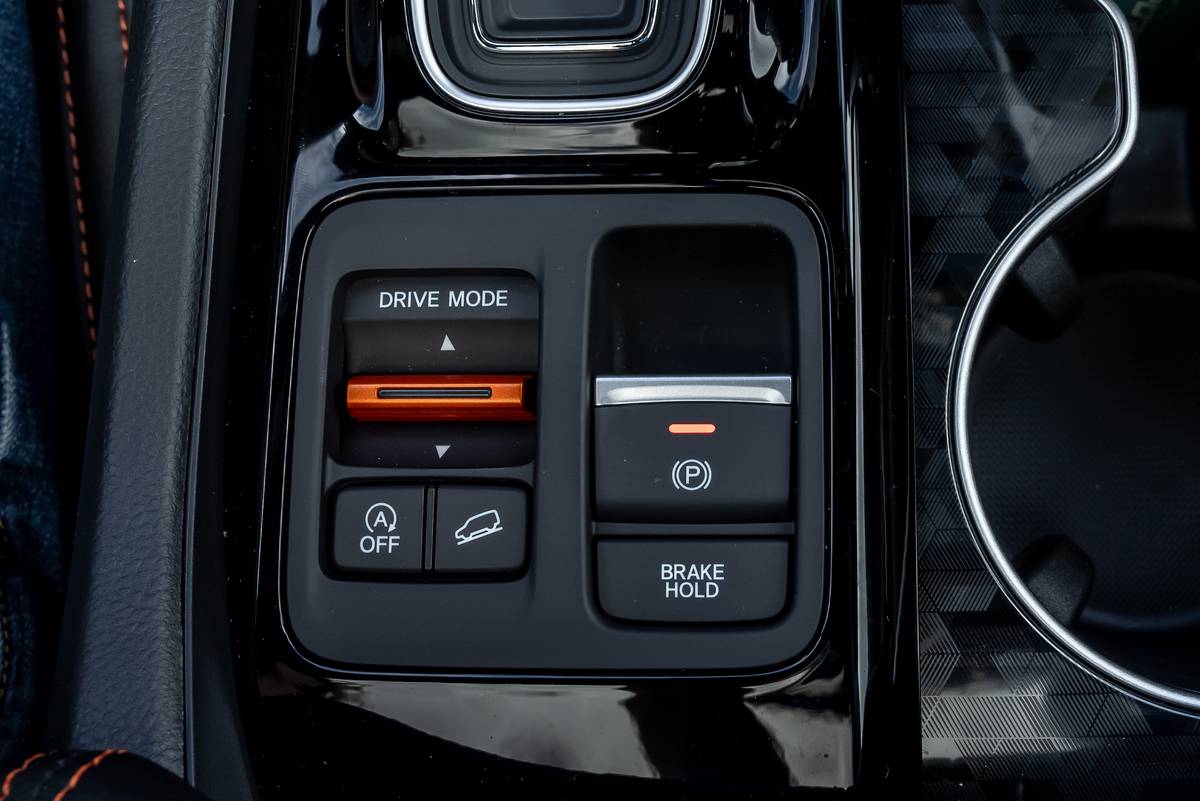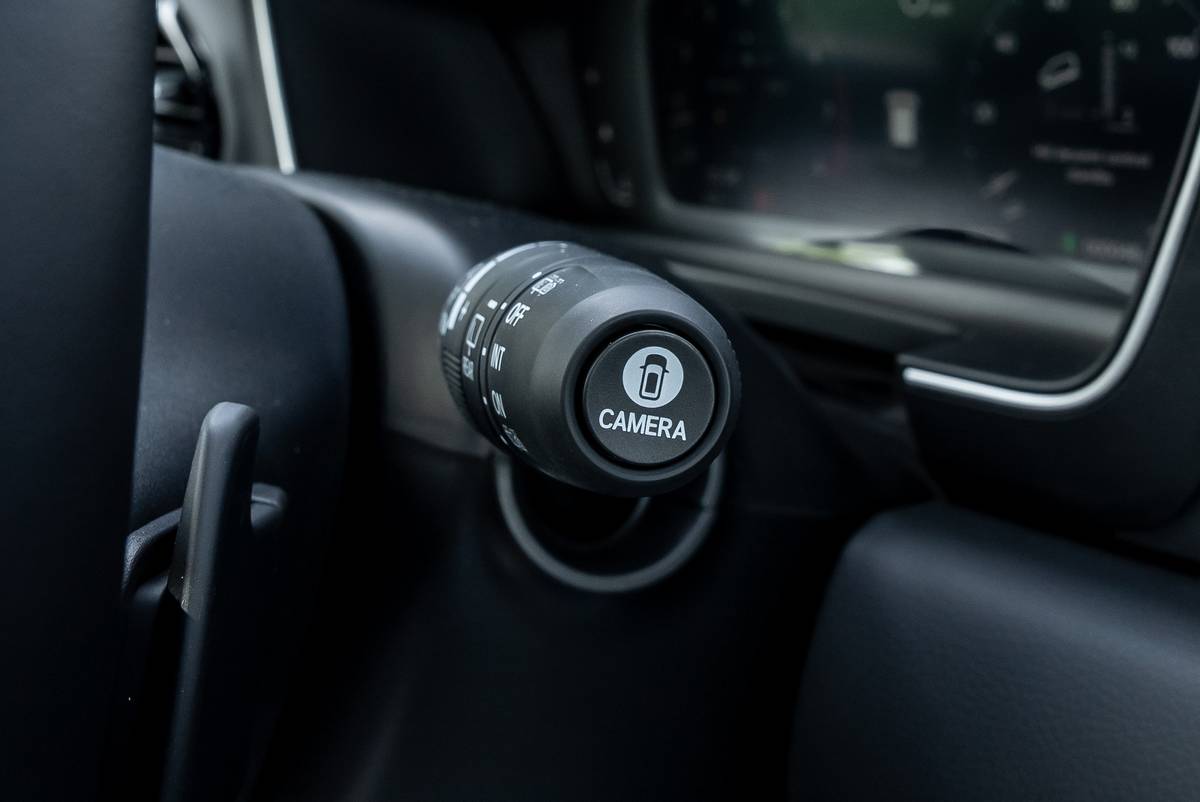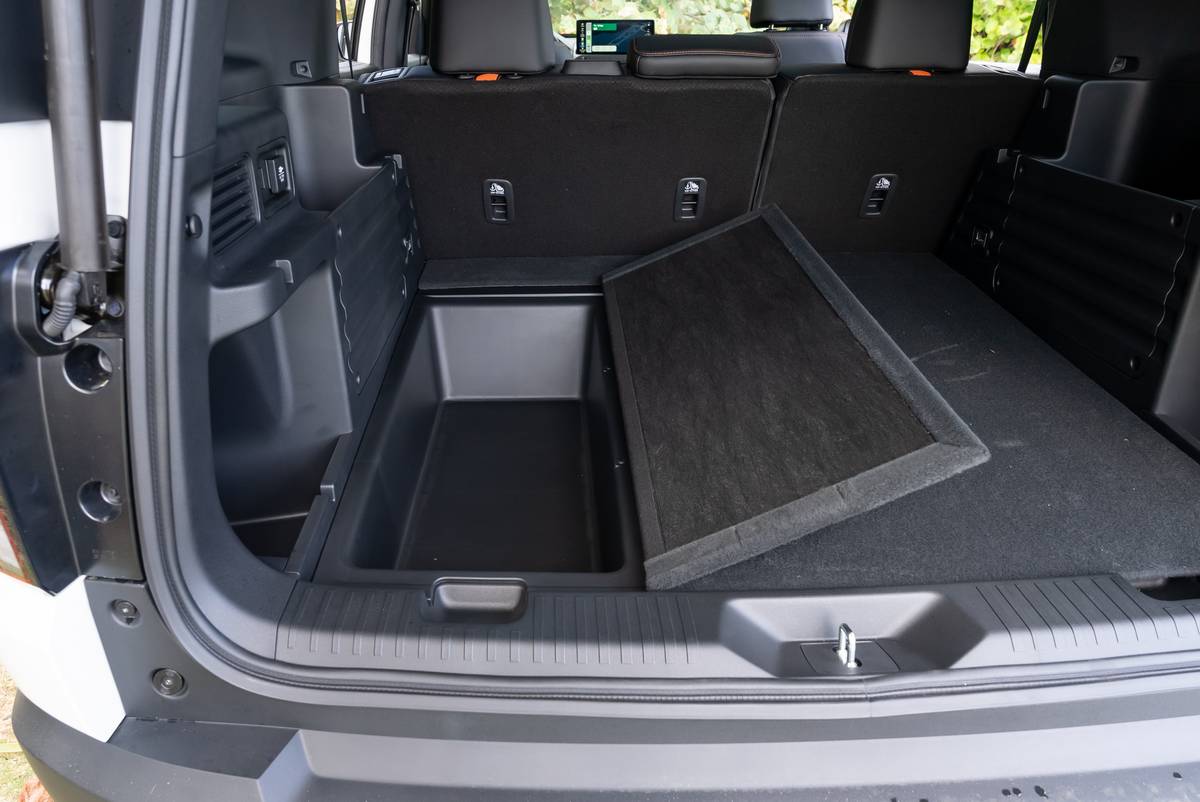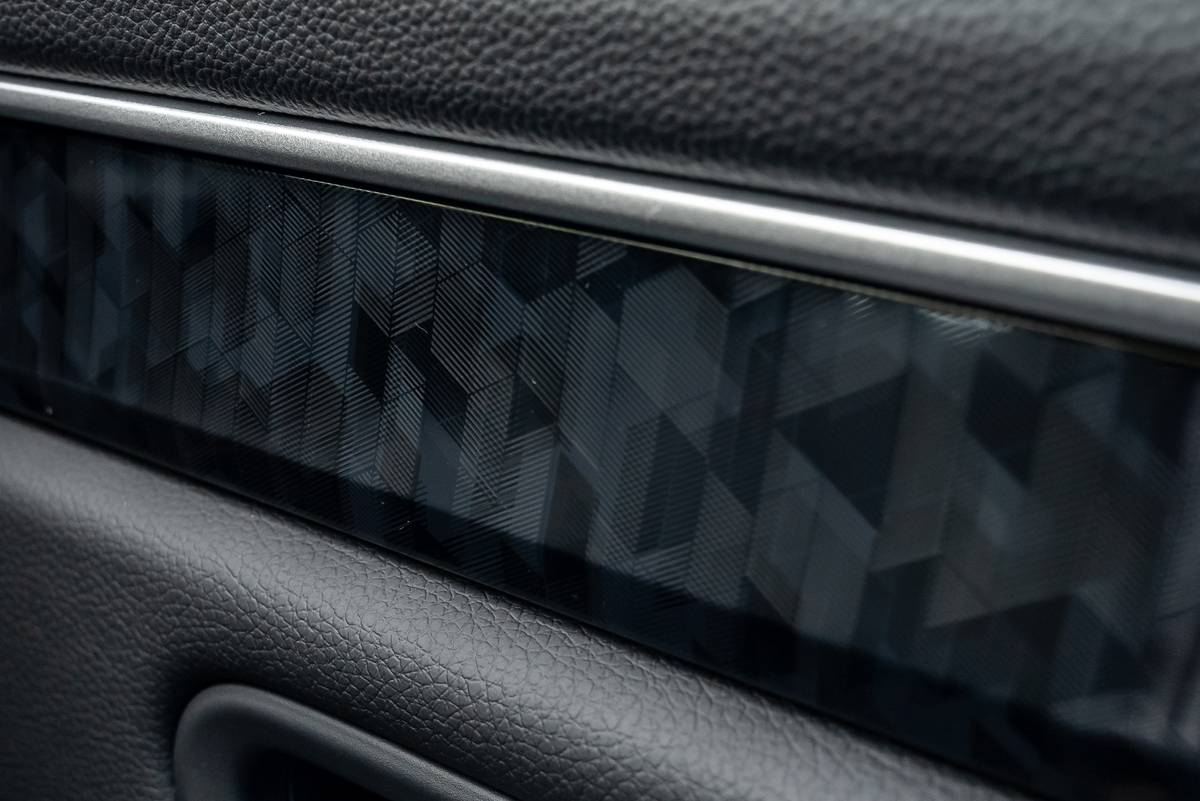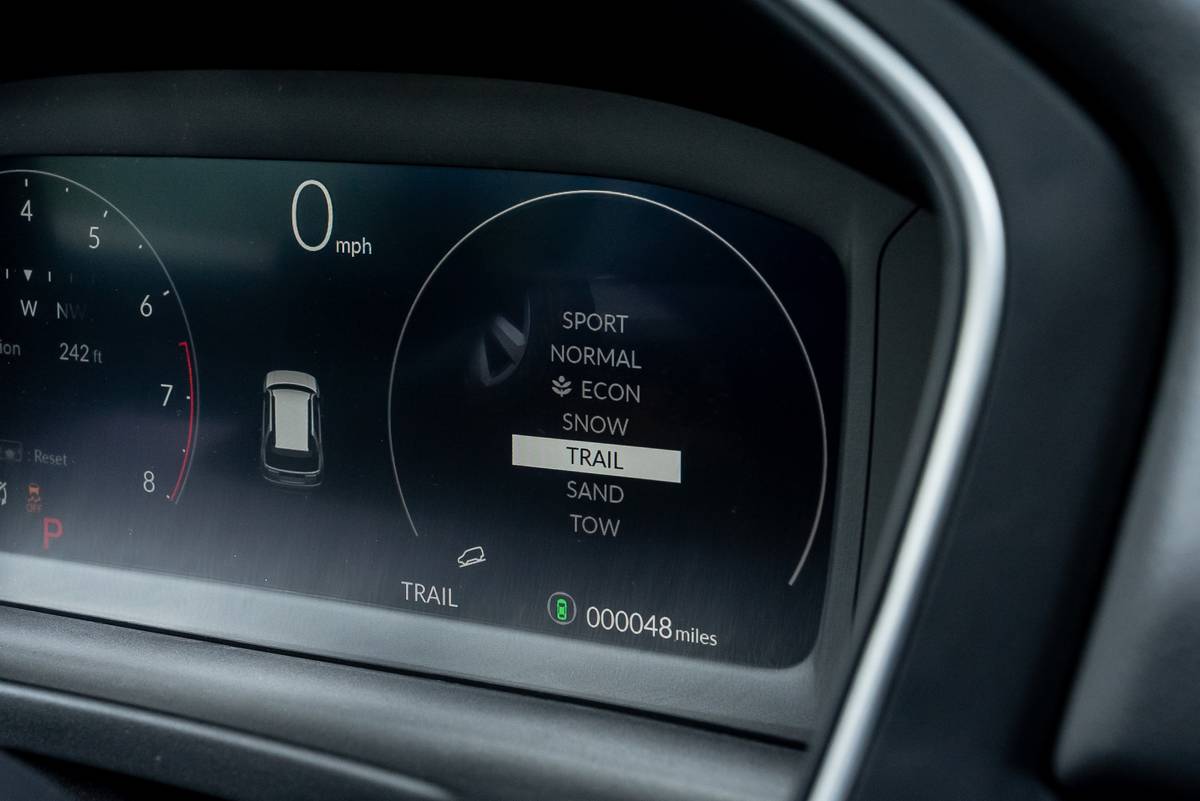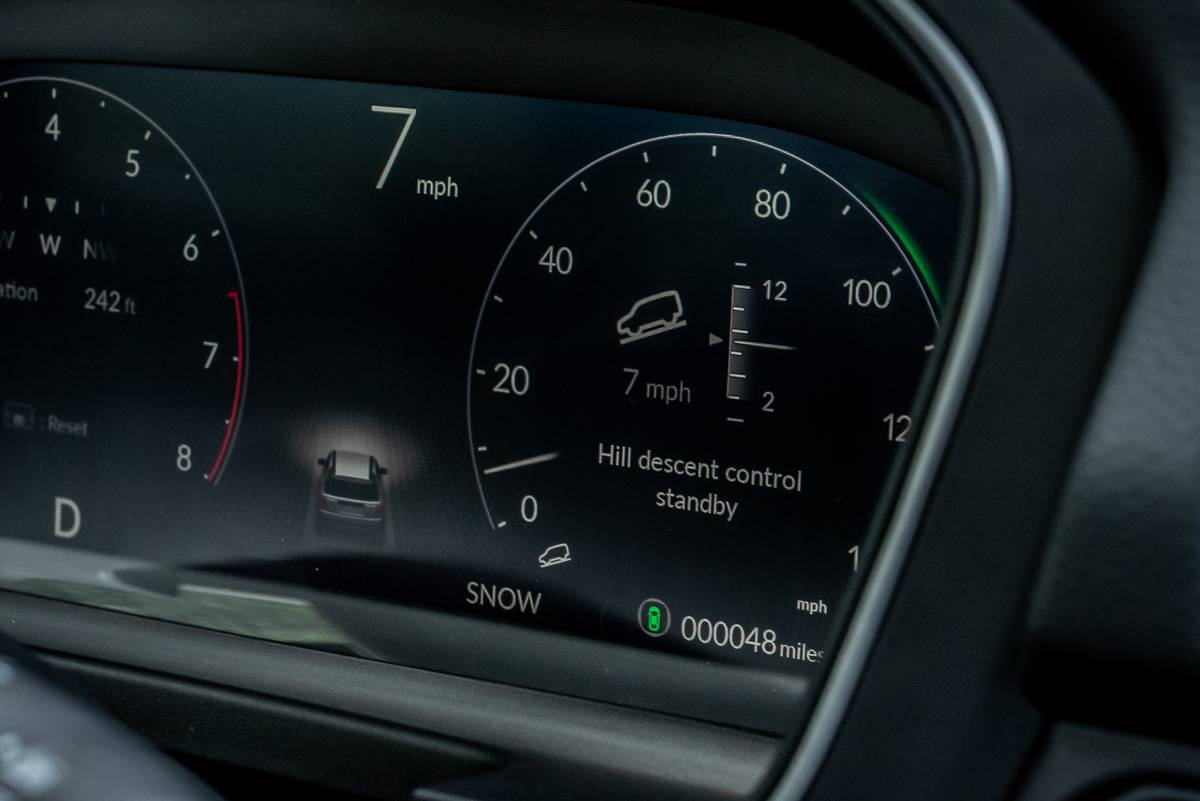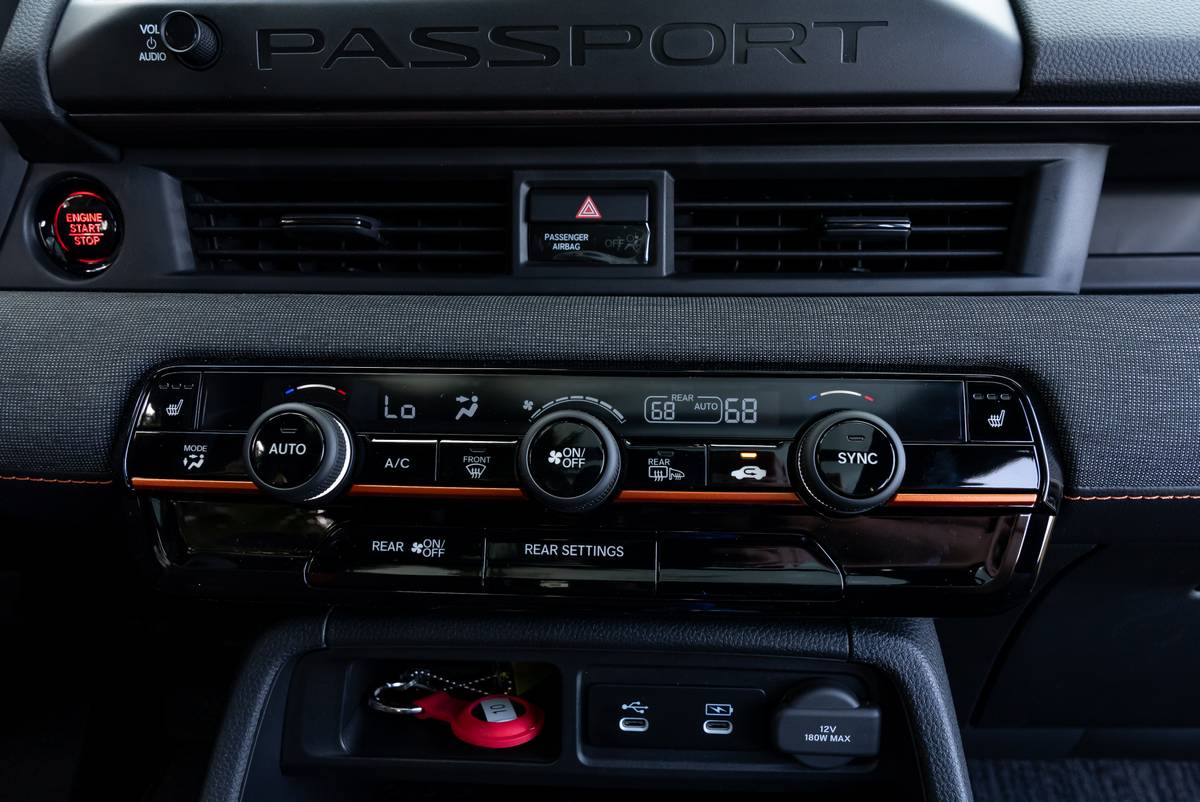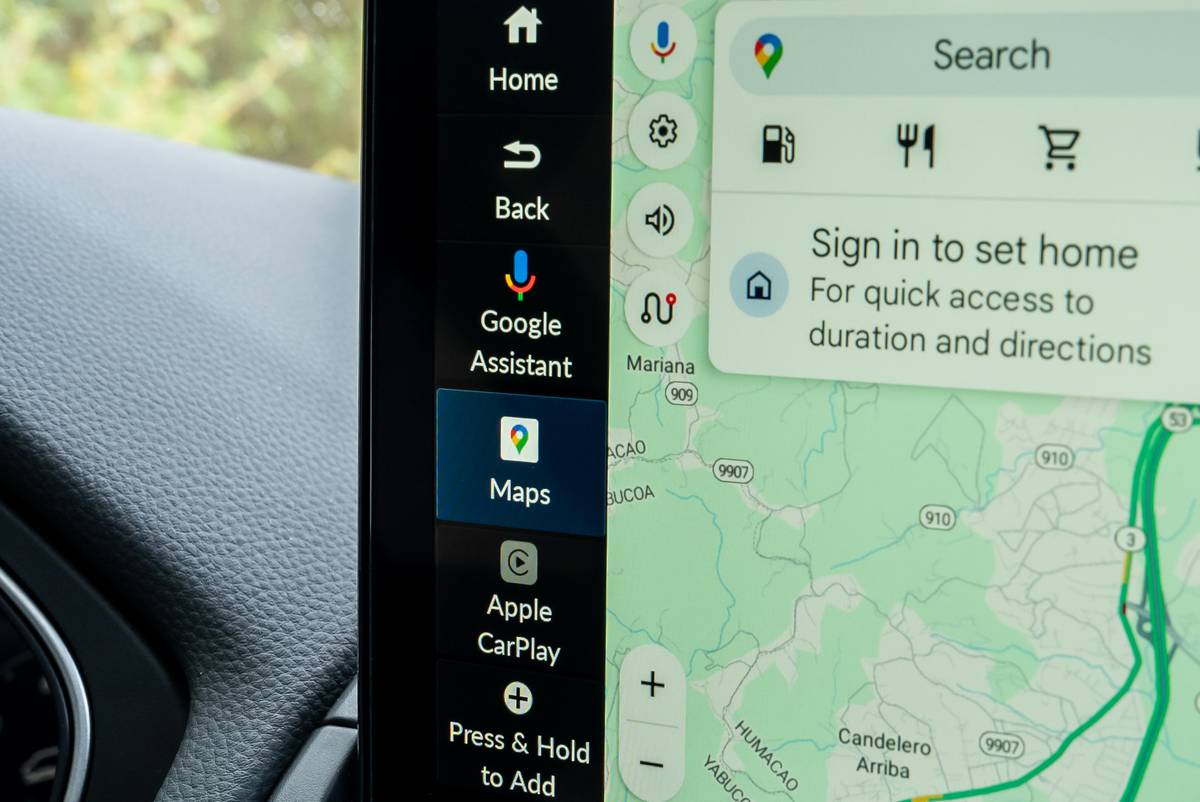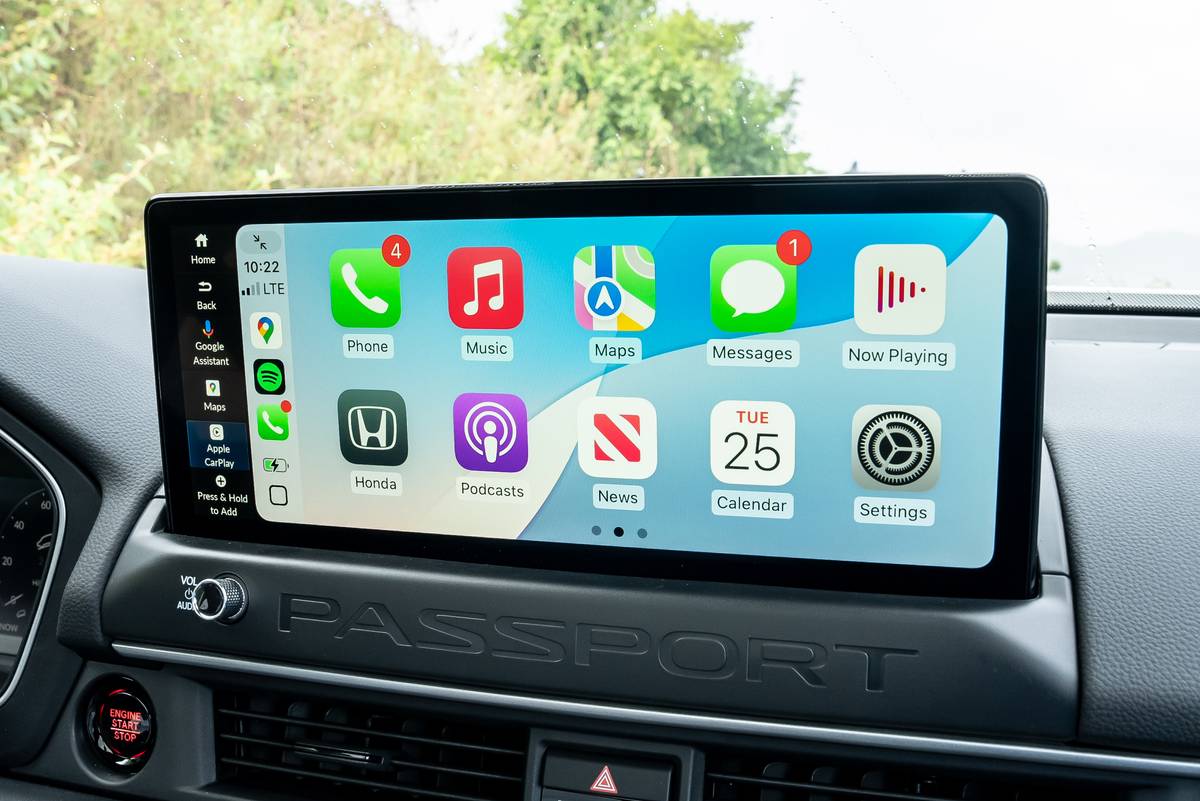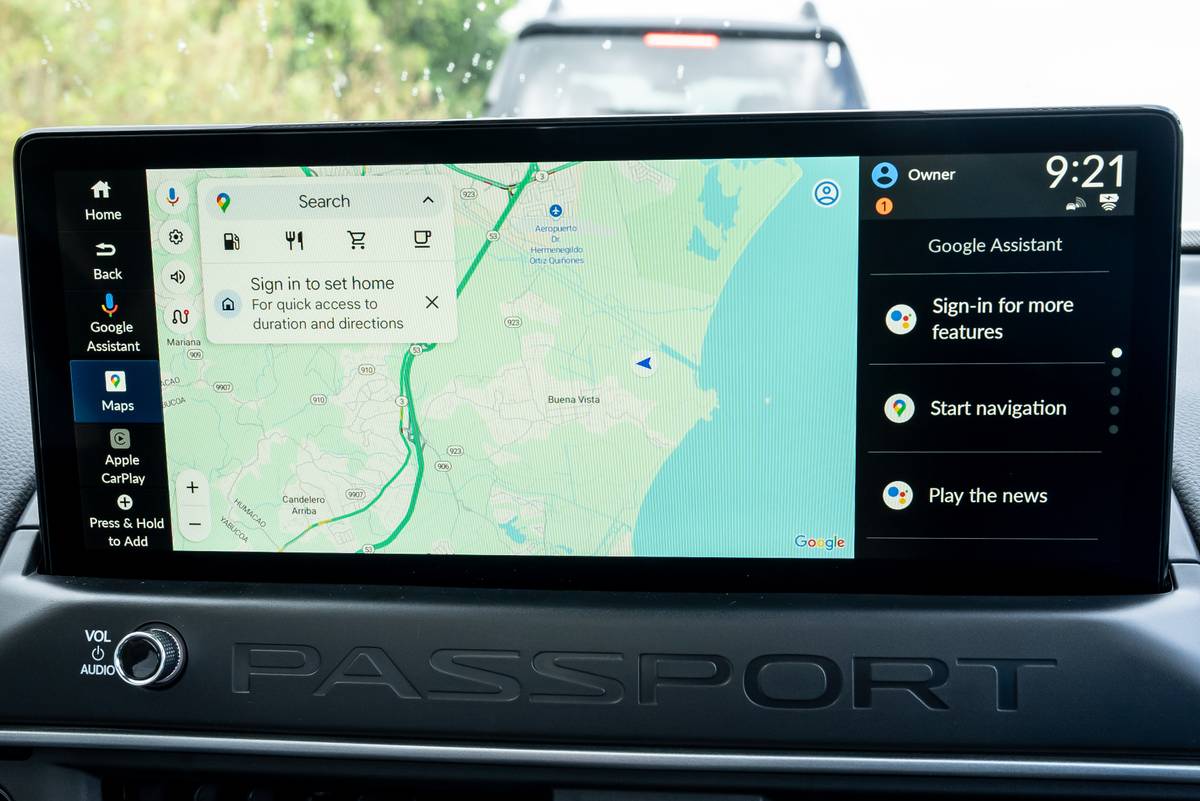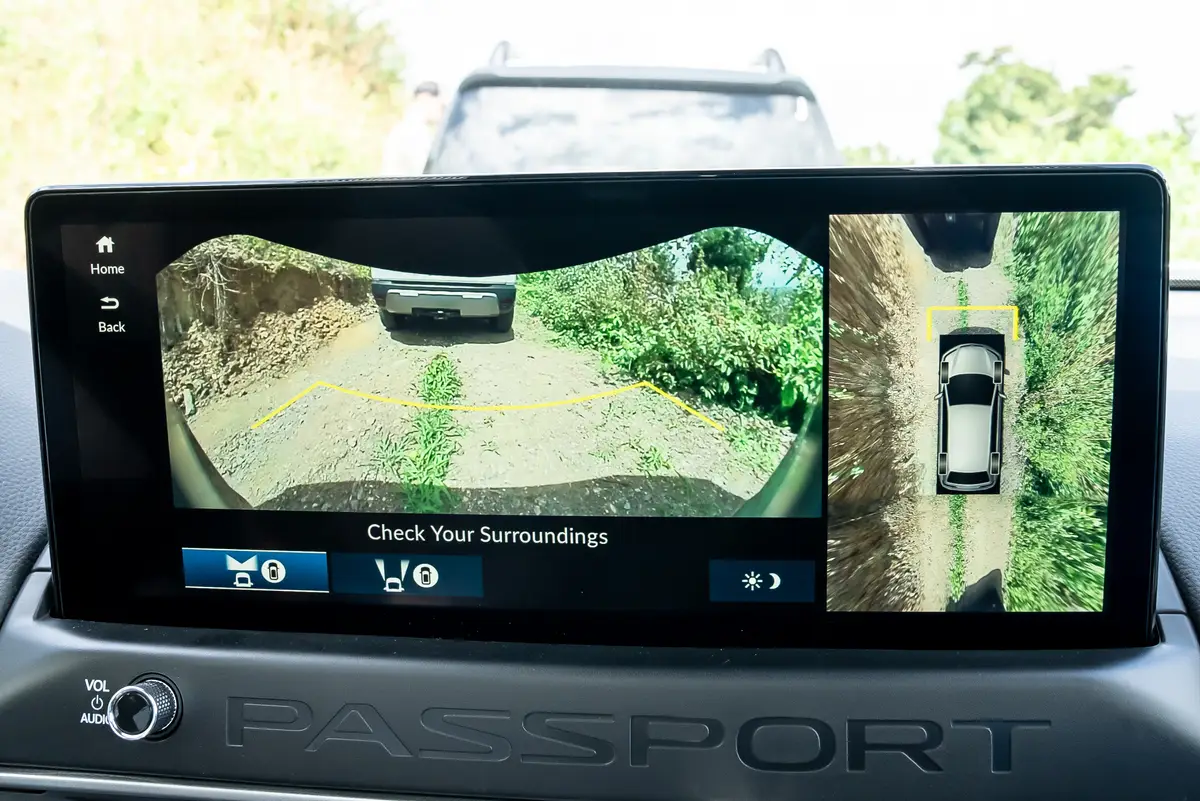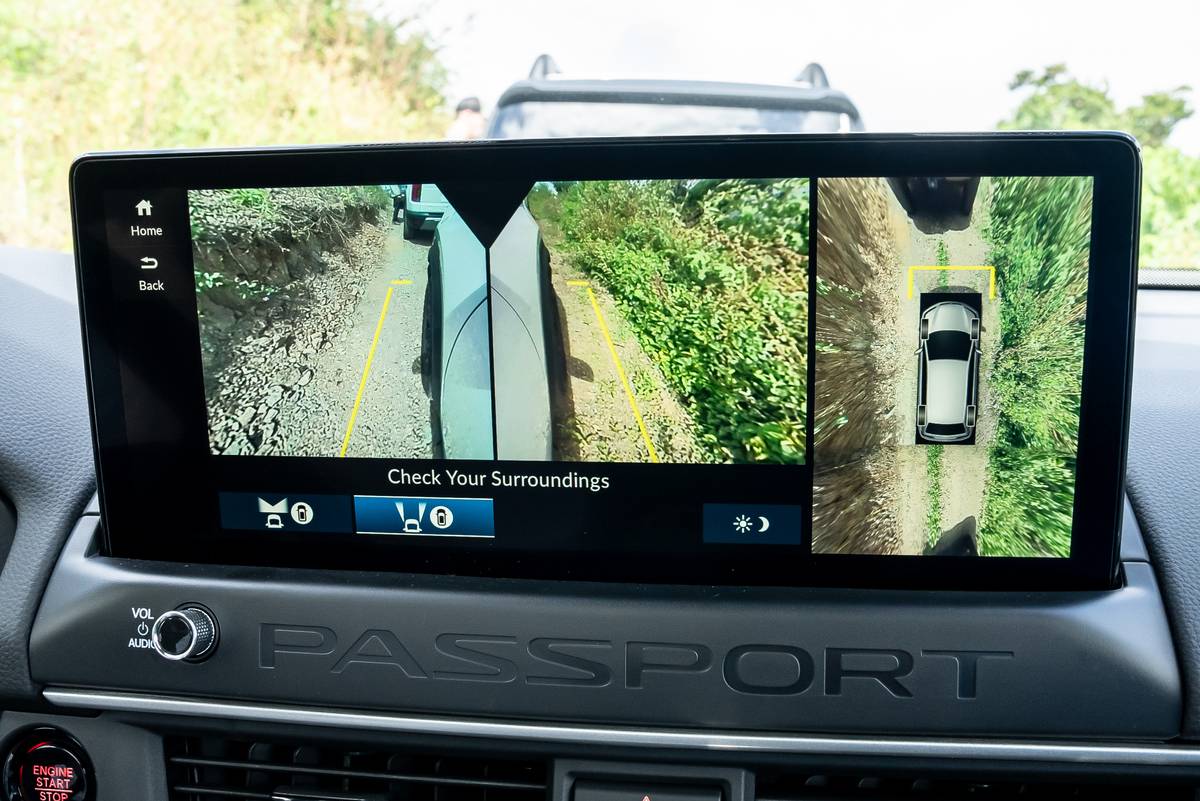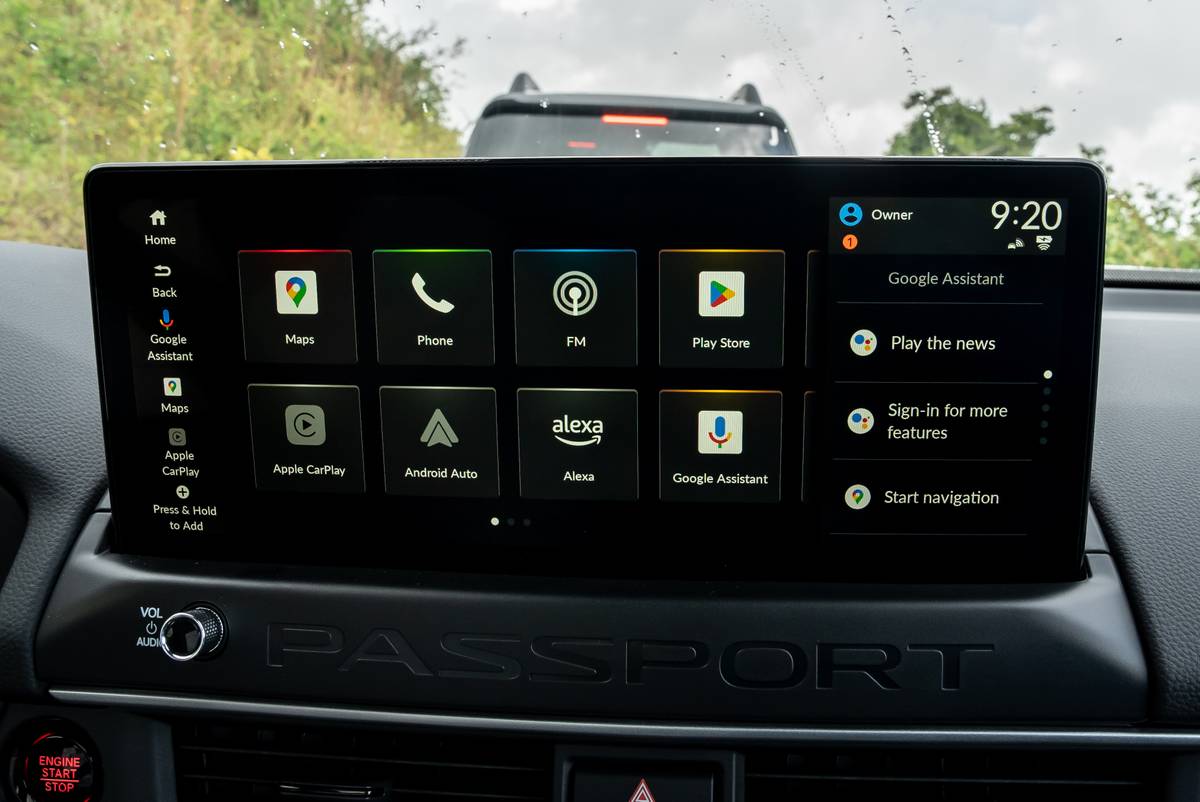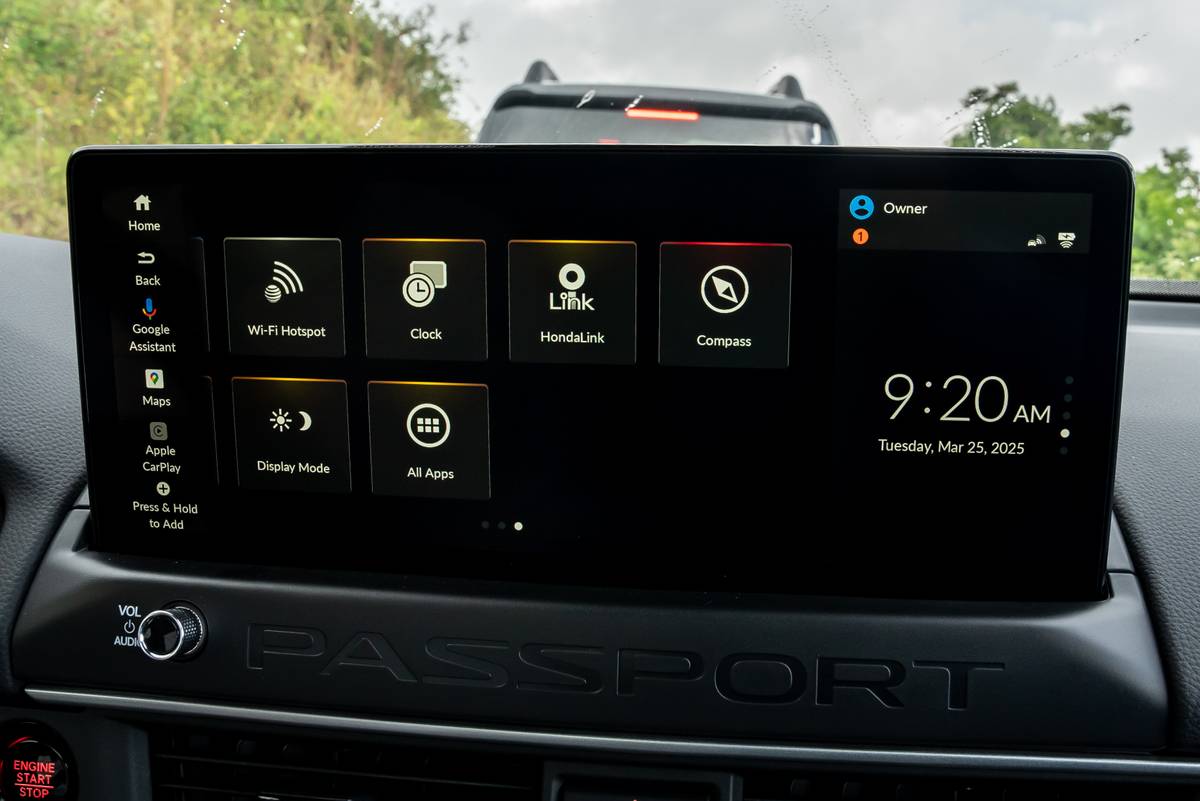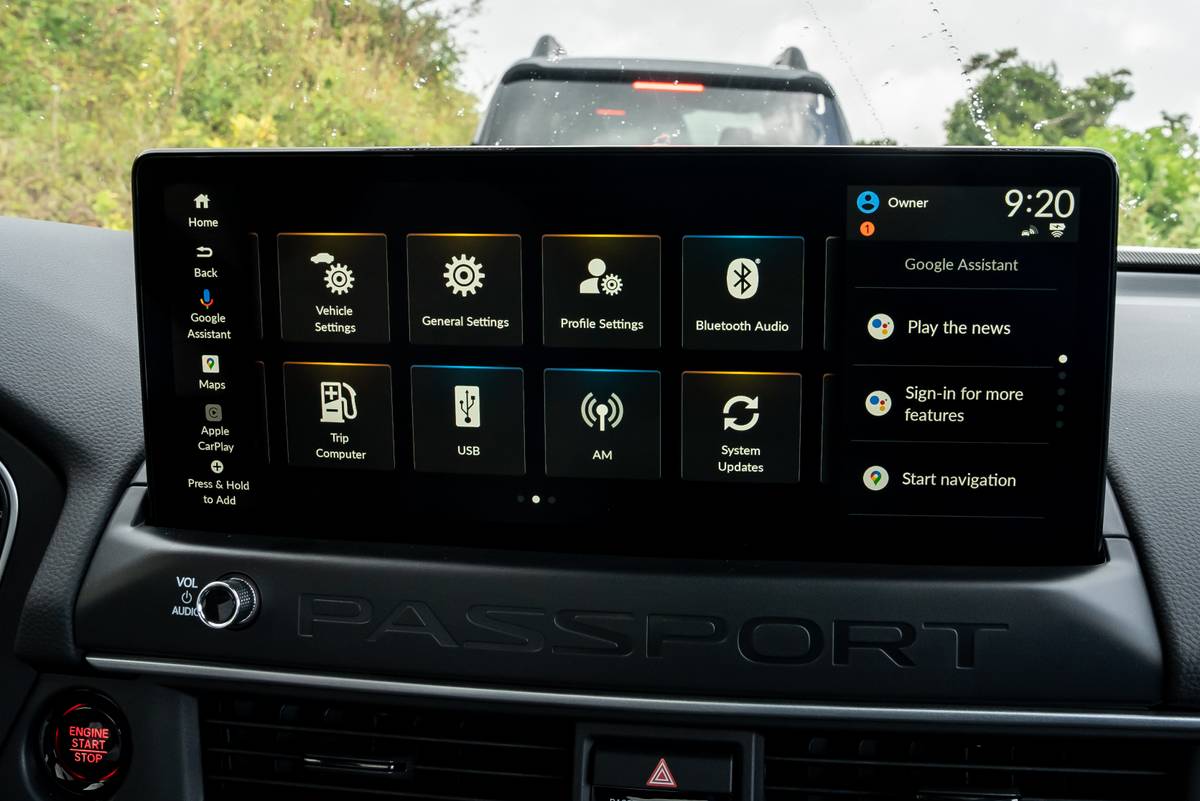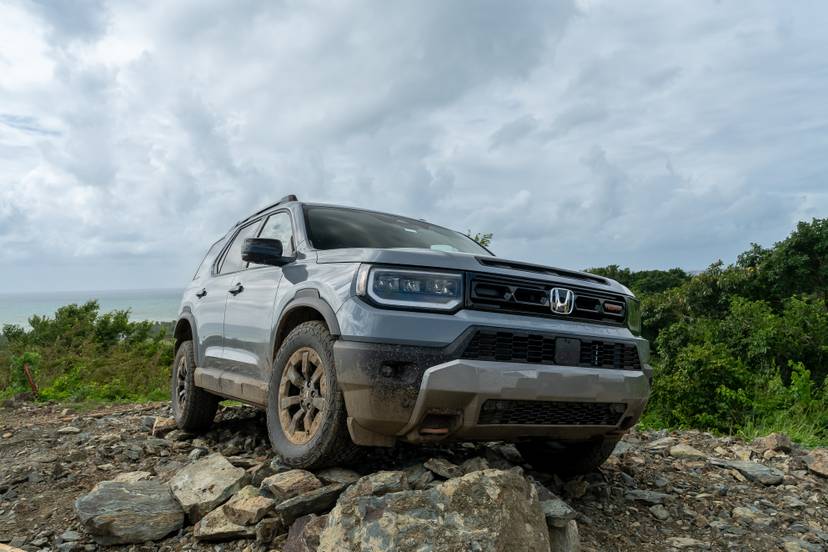
Honda calls the Passport TrailSport “the most off-road-capable Honda SUV ever,” and it lives up to that billing without sacrificing on-road drivability. It has a spacious interior, as well, but its gas mileage is subpar.
How Does the Honda Passport TrailSport Compare With Other Off-Road SUVs?
Detractors will focus on the Passport TrailSport’s unibody design as if it were a fatal flaw, but while it is a relative weakness compared to the Ford Bronco, Jeep Wrangler and Toyota 4Runner, the Passport has a more pleasant on-road demeanor than most body-on-frame vehicles and more off-road capability than all but the most hardcore enthusiasts will likely ever need.
Honda completely redesigned the 2026 Passport, giving it rugged and boxy styling while significantly increasing the TrailSport version’s off-road capabilities. I drove two versions of the Passport TrailSport in Puerto Rico at the launch event: the TrailSport Elite off-road and a regular TrailSport on-road. I wanted to see just how well the TrailSport handles off-roading and if its alleged added abilities make it less pleasant to drive on pavement. (Per our ethics policy, Cars.com pays for all travel and lodging at such manufacturer-sponsored events.)
Related: How Much Is the Redesigned 2026 Honda Passport?
How Much Does the 2026 Honda Passport TrailSport Cost?
- RTL: $46,200 (all prices include destination)
- TrailSport: $49,900
- TrailSport Elite: $53,900
The Passport’s full redesign does not come cheap, with the base RTL trim more expensive than the starting price of the larger three-row Pilot. Prices for both track very similarly up their respective lineups, which is interesting given that the Passport is exclusively a two-row SUV, the Pilot has three rows of seats, and both SUVs offer the same single powertrain — a 285-horsepower, 3.5-liter V-6 with 262 pounds-feet of torque paired with a 10-speed automatic transmission. The Passport, however, comes standard with all-wheel drive, while some Pilot trims come standard with front-wheel drive. A Blackout Package is available on all trims for an extra $1,200; a Towing Package is available on the RTL for $700 and includes a trailer hitch, hitch harness and ball mount, as well as a tool organizer tucked under the floor.
The recently redesigned 4Runner is similarly priced and can get much more expensive — the comparable TRD Off-Road trim starts at just over $50,000 but can reach over $60,000, depending on equipment — but it’s available with a hybrid powertrain. The rugged-looking Hyundai Santa Fe XRT is roomier and more affordable than the Passport but also less capable.
How Does the Honda Passport TrailSport Drive Off-Road?
For the off-roading portion of my driving time, I drove a loaded Passport TrailSport Elite — likely because that’s the only trim level of the Passport currently equipped with Honda’s TrailWatch off-road camera system. The rest of its additional content focuses on creature comforts, with things like ventilated seats (a blessing in muggy Puerto Rico), a premium Bose stereo and a heated steering wheel among the added equipment.
Related Video:
We cannot generate a video preview.
Otherwise, the TrailSport Elite shares the same powertrain, torque-vectoring i-VTM4 AWD system, 8.3 inches of ground clearance (less than a Subaru Crosstrek) and specially designed General Grabber all-terrain tires wrapped around 18-inch wheels that you get on the base TrailSport trim (the standard TrailSport wheels look different than the TrailSport Elite).
The TrailSport Elite is perfectly capable off-road for the vast majority of shoppers, most of whom are very unlikely to travel all that far off any beaten path. The unibody construction makes the Passport prone to lifting a wheel off the ground when on especially uneven terrain, but the AWD system’s torque vectoring can send up to 70% of the total torque to the rear wheels and 100% of that to either wheel and does so quickly, making three-wheeling scenarios somewhat unnerving but brief. A body-on-frame SUV would be better able to articulate its wheels and keep all four in contact with the ground — though not without penalties to on-road behavior. Steel skid plates should protect most of the Passport’s vulnerable bits off pavement, though we’re more skeptical of that protection following our experiences with our Jeep Grand Cherokee 4xe Trailhawk.
Trail camera systems are not uncommon in off-road SUVs, and Honda’s TrailWatch doesn’t necessarily do a lot of unique things, but it does work well and helped me over and through a variety of obstacles during our time on the trail. It offers multiple views — forward, along the sides and a perpetual 360-degree overhead view — but my consistent favorite was the forward-looking display with tire pathing, which let me place my tires exactly where I wanted.
The side view was less necessary on this bespoke trail but would come in handy driving through narrow obstacles. I also enjoyed that TrailWatch appeared automatically on the touchscreen when engaging the Trail drive mode, as did specific gauges for pitch, roll and elevation in the gauge cluster. TrailWatch will also automatically deactivate if you drive over 15 mph but reactivate as your speed decreases below 15 mph, so you don’t have to remember to activate it all the time. That’s good, as the activation button is somewhat hidden on the end of the wiper stalk on the steering column.
With 285 hp and 262 pounds-feet of torque, the Passport is not a high-output monster that can conquer obstacles with brute force, but it has enough to get the job done. It’s also very easy to smoothly modulate the throttle and provide more — but not too much more — oomph to crest a hill. And even without hill descent control turned on, it’s easy to hold power back and keep descents under control. Hill descent control works from 2 mph to 12 mph and can be adjusted using the brake and throttle pedals (since it’s a foot-free system otherwise, I would prefer the paddle shifters for that) and makes a mechanical racket, but it does the job when you want to keep things really slow.
How Does the Honda Passport TrailSport Drive on Pavement?
On paved roads, I drove a regular TrailSport and wanted to see if all the things that make it capable off-road have on-road consequences. For the most part, they don’t: On pavement, the Passport TrailSport is comfortable and composed, and its off-road-tuned suspension and thick tire sidewalls help it absorb bumps and imperfections without transmitting much into the cabin.
Body control is also good for a larger off-road SUV; the Passport TrailSport doesn’t wallow from side to side or lean too heavily in sharper corners. The steering feel isn’t the sharpest I’ve seen from a Honda but is perfectly acceptable for an SUV of this size. The all-terrain tires are noisier than the ones found on the Pilot TrailSport, but not annoyingly so. While there’s enough power for passing and merging, I found throttle response a bit lethargic in the Normal driving mode and preferred Sport if I knew I’d have to step on it. Try not to step on it too much when driving the Passport, however, as its disappointing fuel economy is a weak point. The RTL is EPA-rated at 21 mpg combined, while the TrailSport drops to an estimated 20 mpg combined. Those numbers trail both the hybrid 4Runner and the Santa Fe XRT. The good news for Honda is that the Passport isn’t significantly less efficient than either, but it is still less efficient.
Does the Honda Passport TrailSport Have a Nice Interior?
“Nice” isn’t the first word I would use to describe the Passport TrailSport’s interior, but it feels competitive in its particular niche of “comfortable but capable.” The leather upholstery feels nice enough, and the Elite’s exclusive brown leather gives it a more upscale vibe, but the real strength of the Passport’s interior isn’t its quality, it’s the space.
The cockpit feels roomy and airy, though I would sacrifice some of that airiness for a more traditional gear-selector lever instead of the button-based system Honda uses. The backseat, however, feels spacious enough for three adults, and there’s no transmission tunnel encroaching in the footwell, which adds some extra leg-stretching room. The cargo area, meanwhile, feels gigantic and is configurable in a variety of ways, with ample underfloor storage, an available divider that can be converted into a table and the ability to store an entire full-size spare tire upright in the cargo compartment. To my chagrin, no Passport I drove came equipped with its optional full-size spare; when we saw it at the Passport’s debut, it didn’t seem to impact outward visibility, but I’d hoped to give it a real-world test.
I’m really excited to test a Passport TrailSport at our Chicago headquarters to see how good it is at fitting child-safety seats and how much cargo space it has according to our in-house methodology.
How Is the Honda Passport TrailSport’s Technology?
The 2026 Passport has the most technologically advanced interior of any Honda SUV that isn’t the Prologue (which uses a GM-designed user interface), with a standard 12.3-inch touchscreen display with Google Built-In, Amazon Alexa, and wireless Apple CarPlay and Android Auto. We’ve seen it in a few other Hondas (notably the Accord), and it works well, though it isn’t class-leading. Hyundai and Kia still likely get that nod, with GM close behind, but the Honda’s graphics are clear and the menus intuitive — and there are still physical climate and audio controls. The presence of a home button in the display makes it a bit more user-friendly than what Toyota currently offers, too. The standard 10.2-inch digital instrument panel also has crisp and clear graphics.
More From Cars.com:
- 2026 Honda Passport Up Close: Broadcasting Its Intentions
- All-New 2026 Honda Passport Revealed: Larger, More Capable, Less Frumpy
- Is the 2024 Honda Passport a Good SUV? 5 Pros, 2 Cons
- 2024 Honda Passport Review: Your Ticket to (Mild) Adventure
- Find a New 2026 Honda Passport Near You
Should You Buy a 2026 Honda Passport TrailSport?
The 2026 Honda Passport is already on sale, and the Passport TrailSport is a solid choice if you’re looking for a rugged-looking, useful SUV that can handle itself when the going gets rough, still need something comfortable for daily driving and can live with mediocre fuel efficiency. A wealth of Honda accessories will help you make it all your own, too. But if you’re looking strictly for an off-roading toy that can go anywhere and do anything, the 2026 Honda Passport is not for you — though if you’re a shopper in that category, you probably knew that already.
Cars.com’s Editorial department is your source for automotive news and reviews. In line with Cars.com’s long-standing ethics policy, editors and reviewers don’t accept gifts or free trips from automakers. The Editorial department is independent of Cars.com’s advertising, sales and sponsored content departments.












